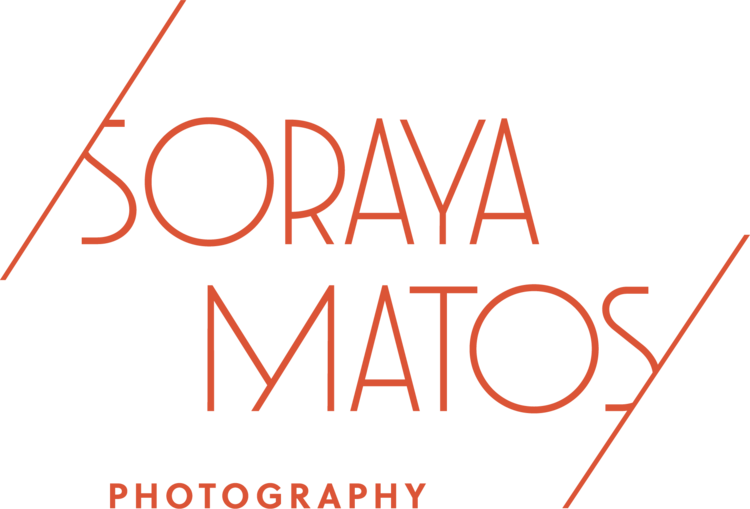THE GHOST PEOPLE OF TANZANIA
They are called, zeru zeru, which in Swahili translates to the ghost people - these are the persecuted people with albinism (PWA) in Tanzania.
Currently, Tanzania holds the world’s largest population of people living with albinism with 1 in every 1,400 individuals
.... But for a country with such a large albinism population there is little awareness of the fact that albinism is a genetic condition. Witchcraft is at the root of Tanzanian culture, and ‘Albino elixir’ has become a formula of which witch doctors brew albino body parts fueling beliefs. They spread the lie that these potions bring wealth, power, and good fortune.
As a result of these misconceptions, the albinism population lives under the daily threat of abuse, abductions, and ritual killings.
When human rights are ignored, the marginalization of certain persons within a society prevent such a group from becoming involved and benefitting from development.
People with albinism have been rendered worthless by a society that denies their existence, yet their bodies hold a high commercial value for those that believe they hold magical power.
These individuals live their entire life hidden. Hidden from the sun, hidden from light, hidden from others, hidden in the shadow of the world.
This visual advocacy project explores the identities of
50 Tanzanian people with albinism
The aim for every photograph produced is to combat the discrimination and attacks against people with albinism through education and advocacy.
To allow individuals to tell their own story rather than someone tell it for them drives towards
breaking the cycle of injustice, poverty, and marginalization.
By pushing the boundaries of the medium, in the means of 300 large-scale diptychs, these photographs are displayed in communities throughout Tanzania as a means of a public space for an encounter between a subject and its audience.
Through powerful testimony and public art, this project aims to create a bridge for Tanzanian society to become informed of the condition and advocate for the
inclusive human rights of people with albinism.
THE PROJECT
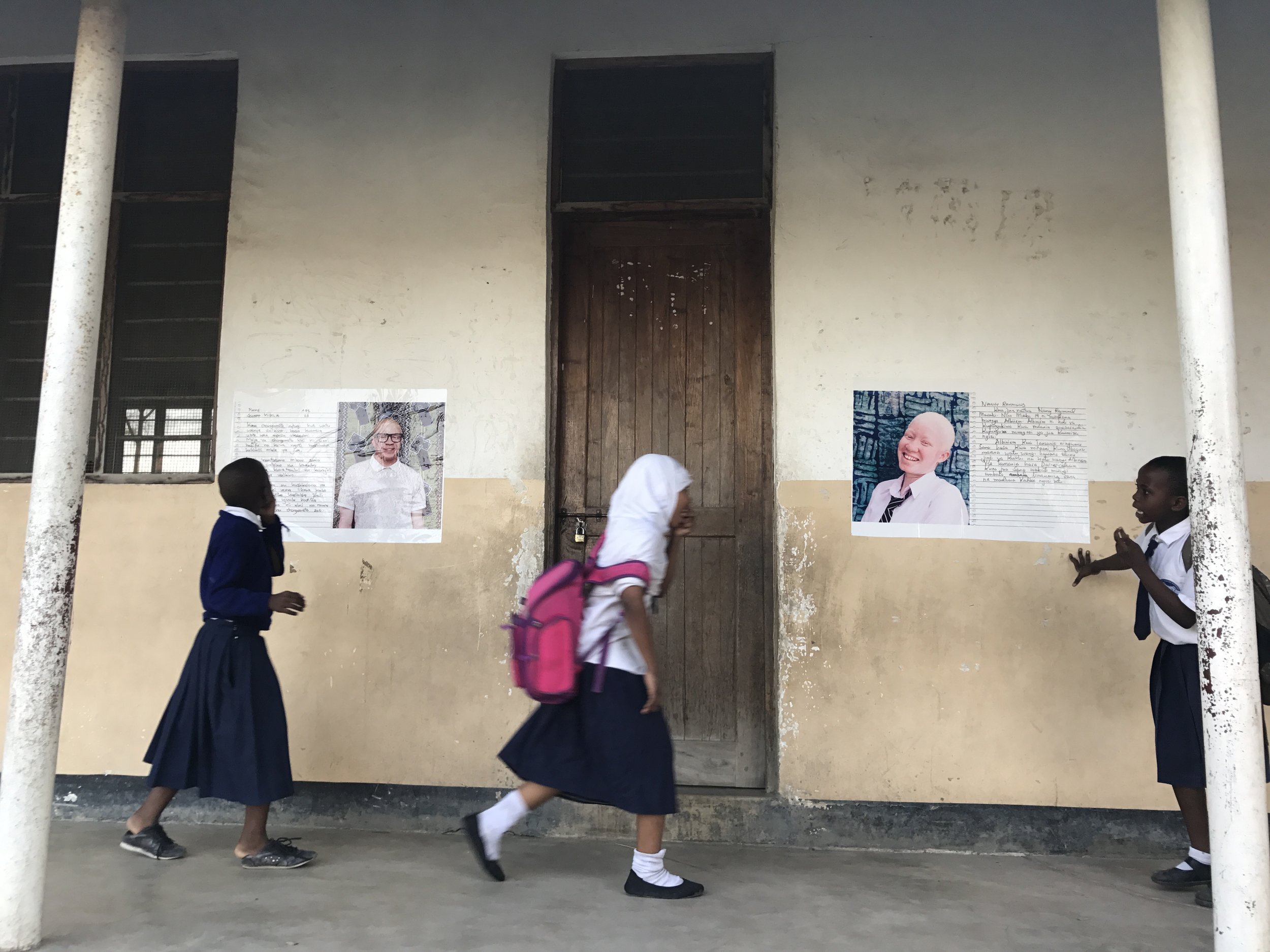
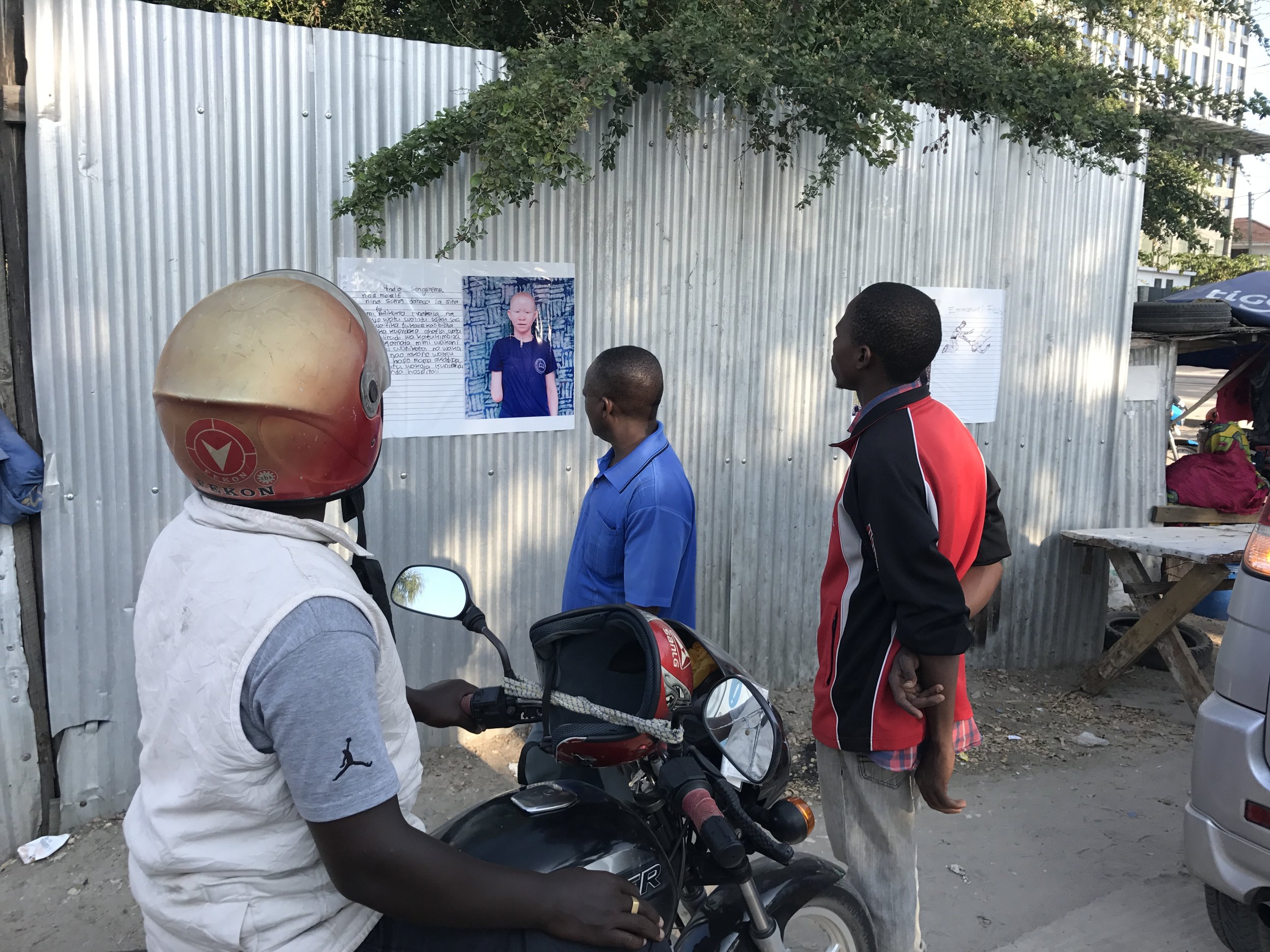
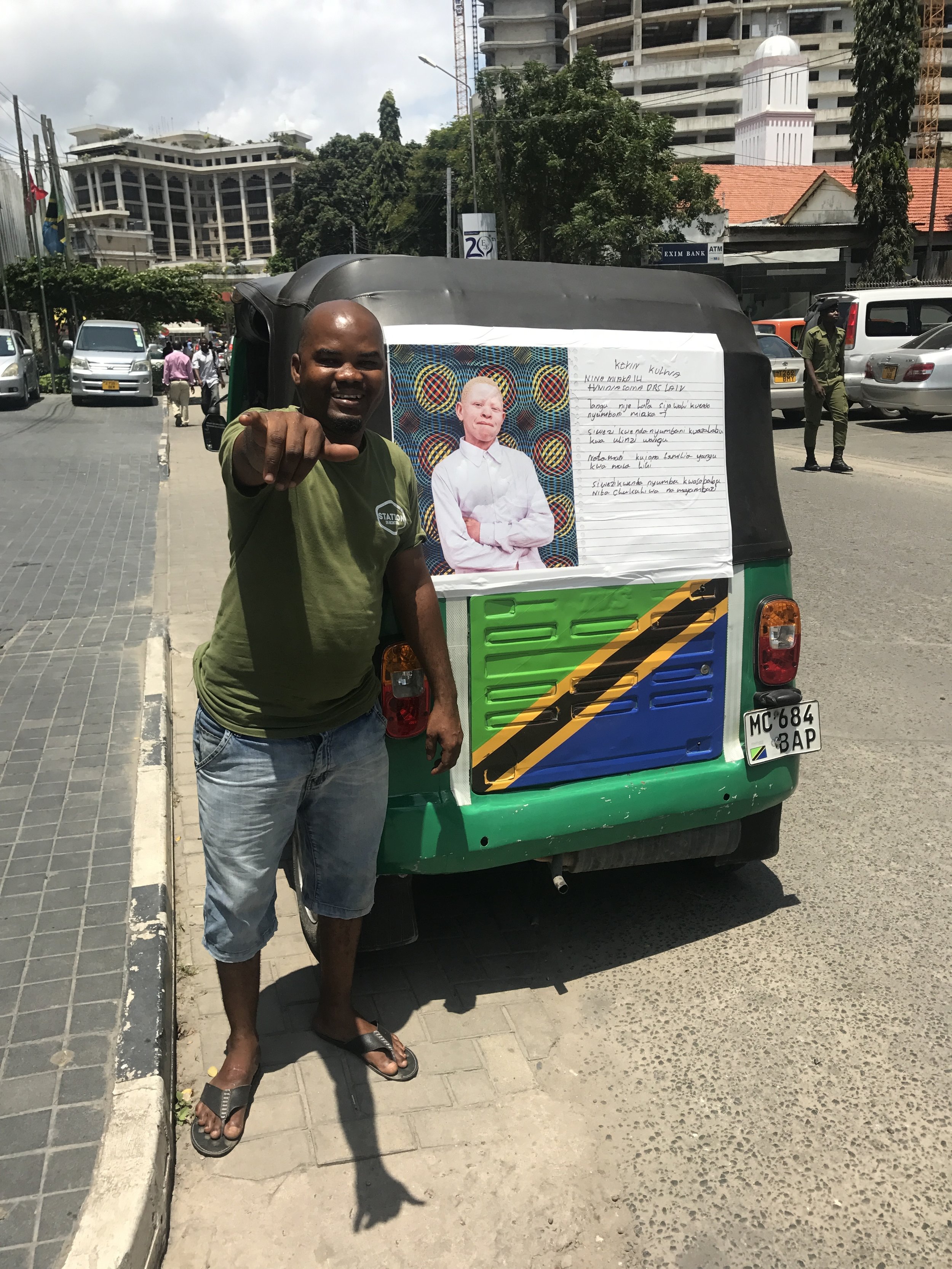
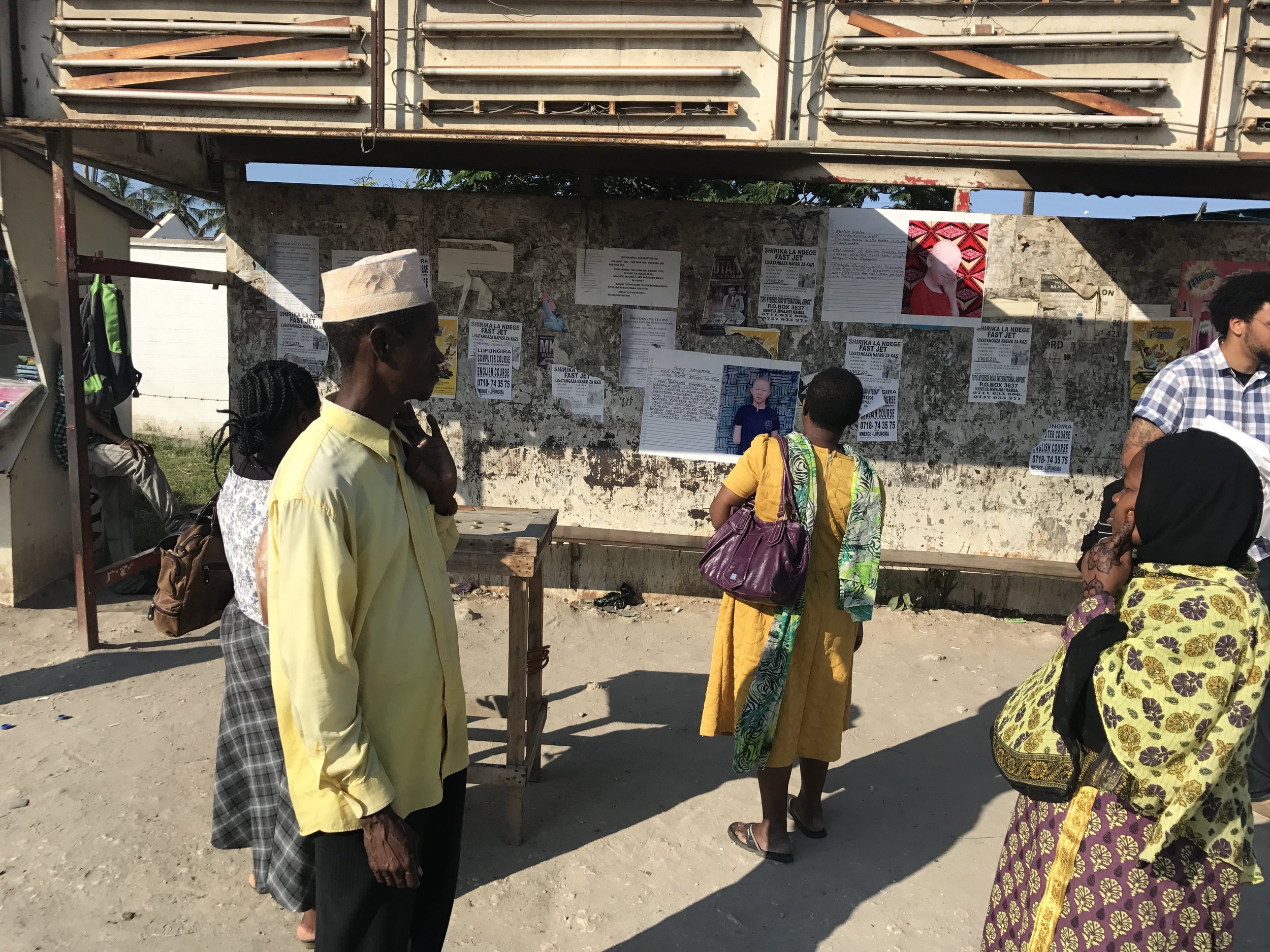
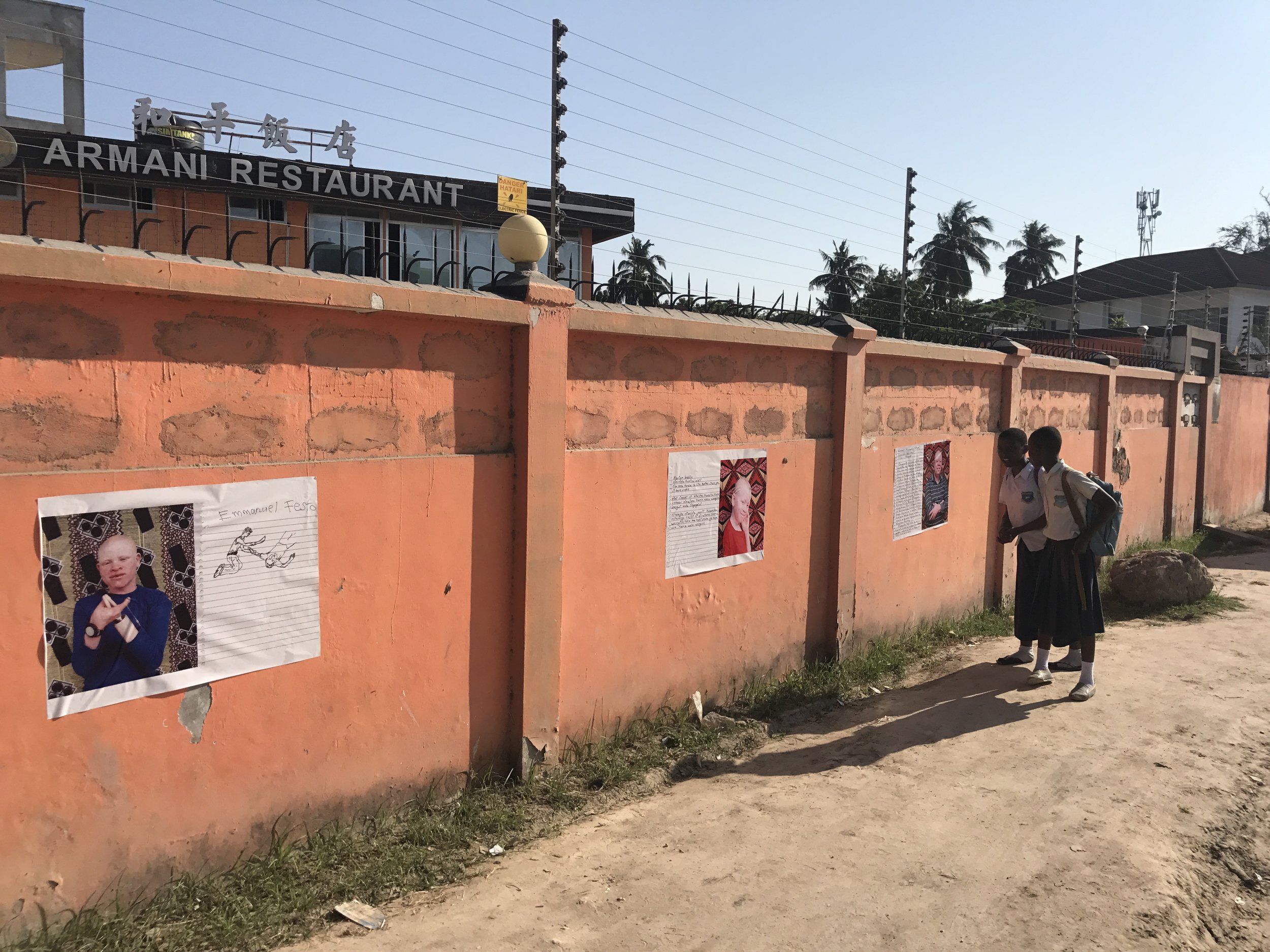
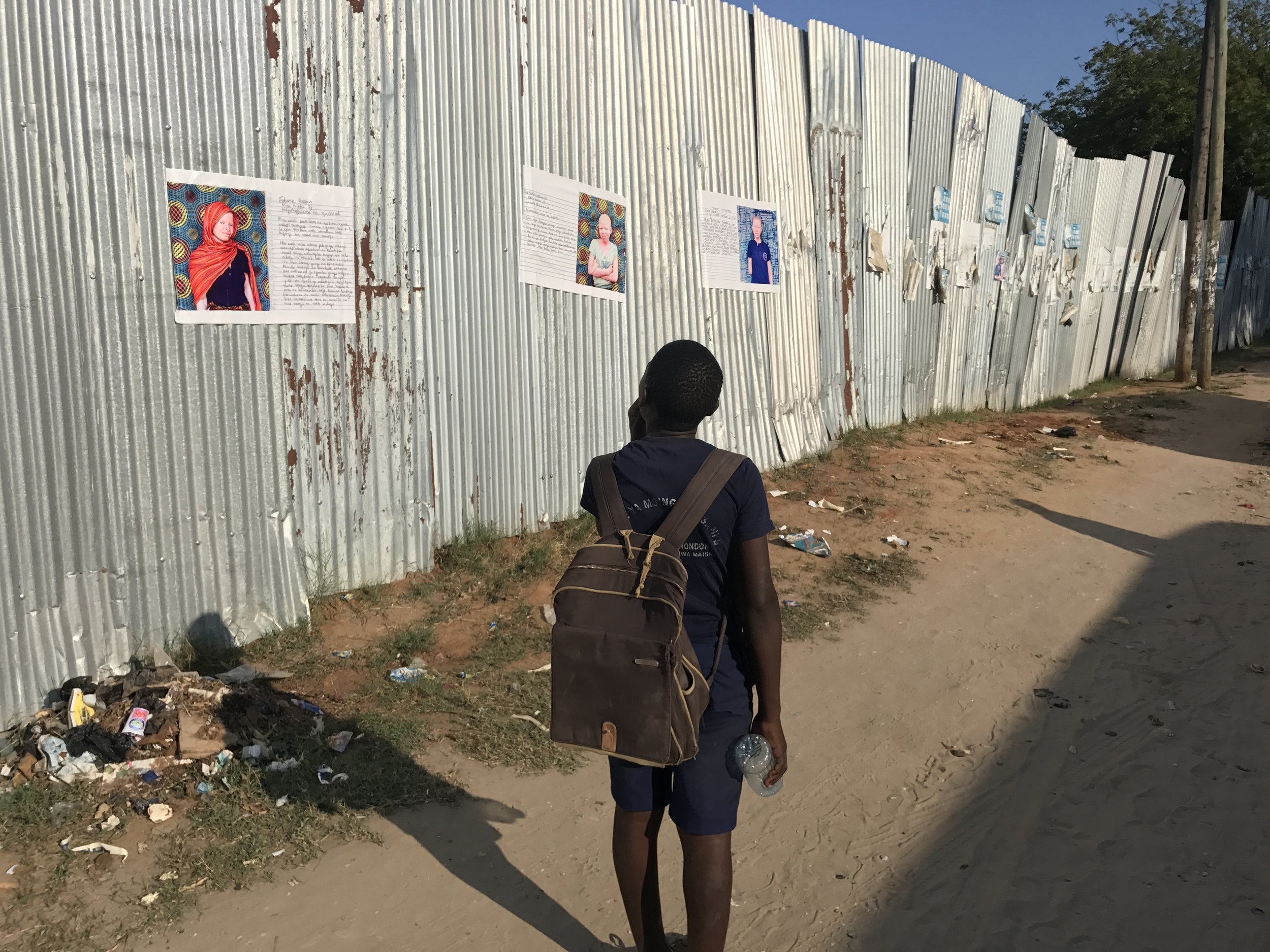
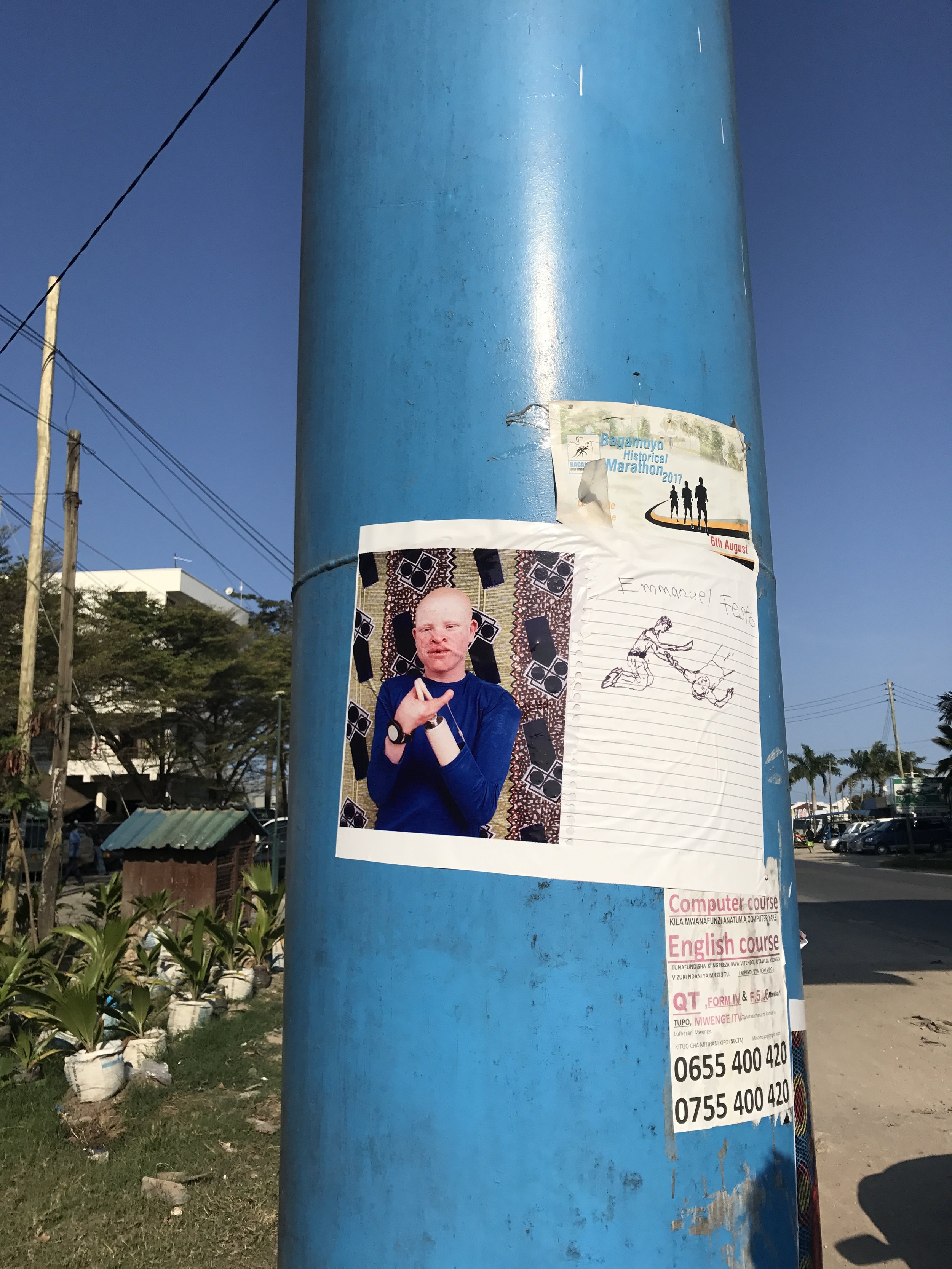
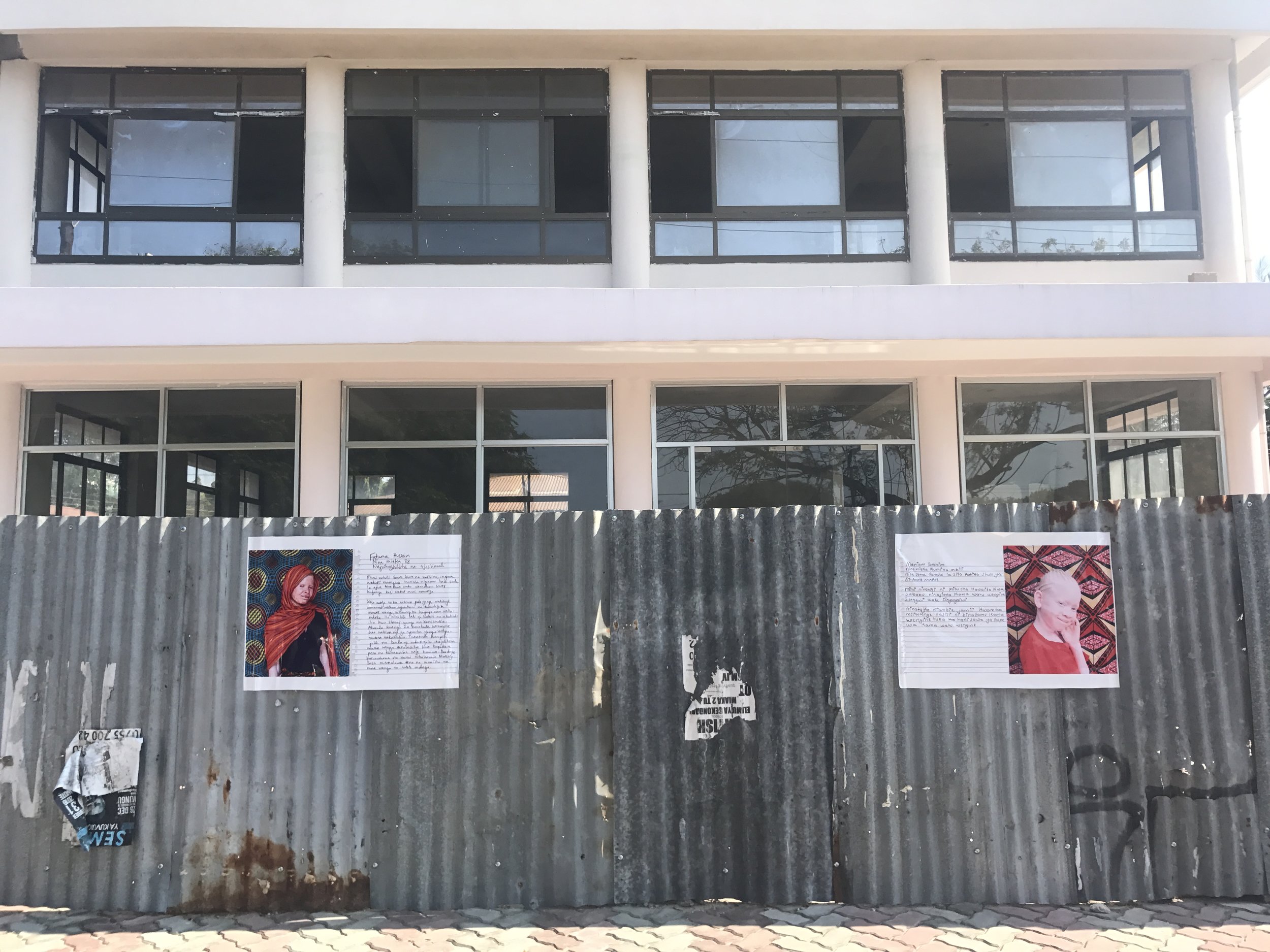
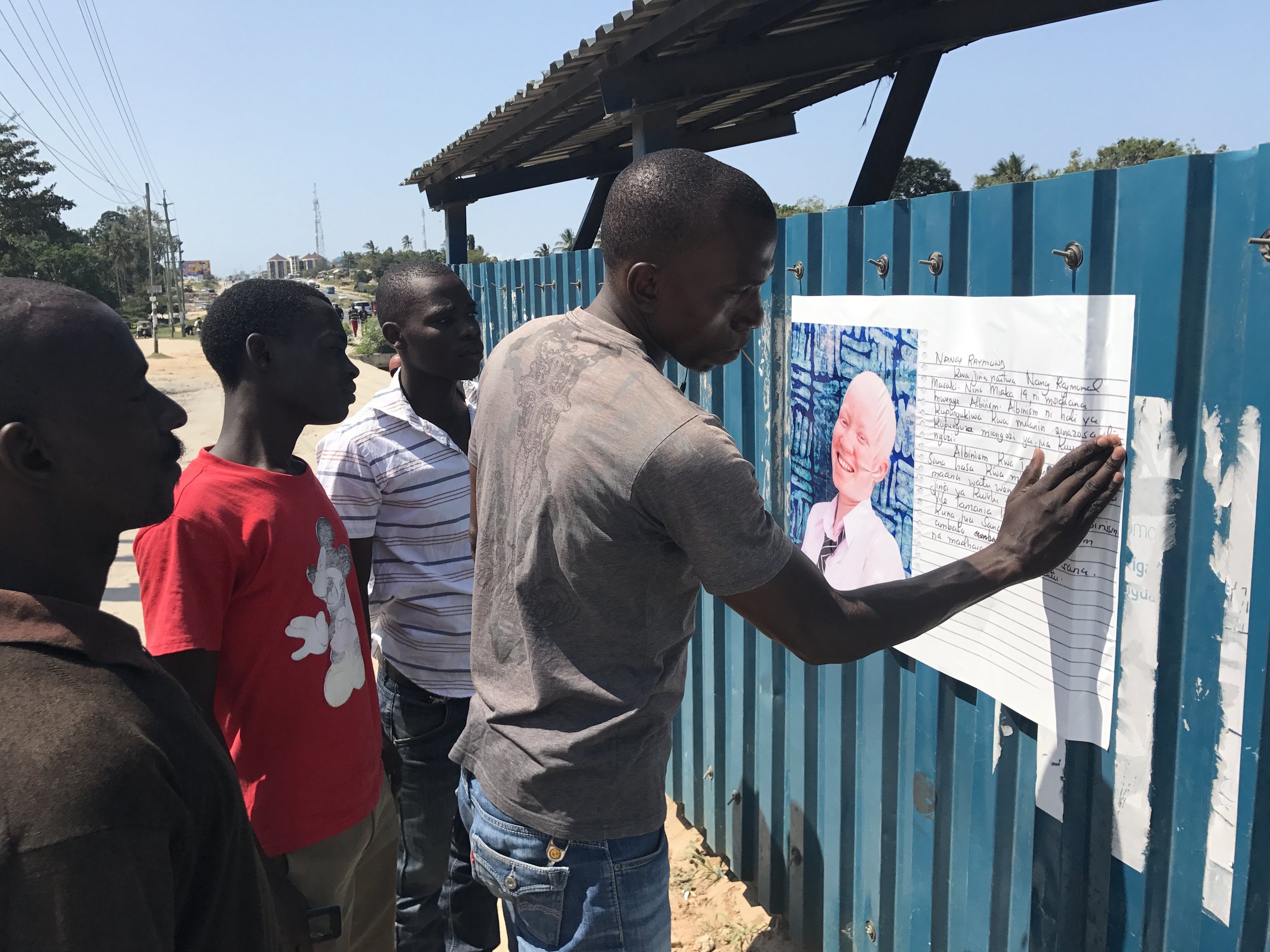

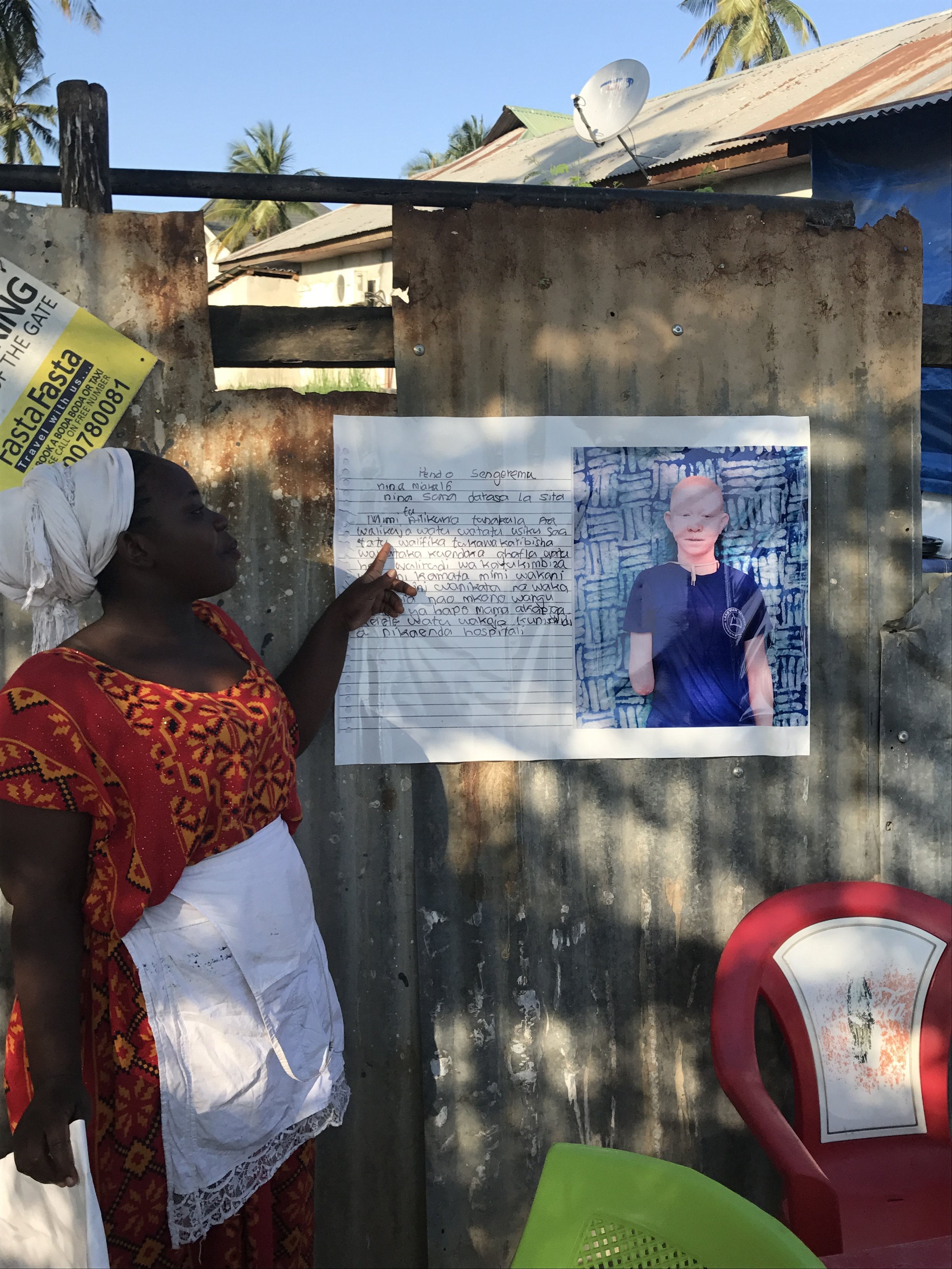
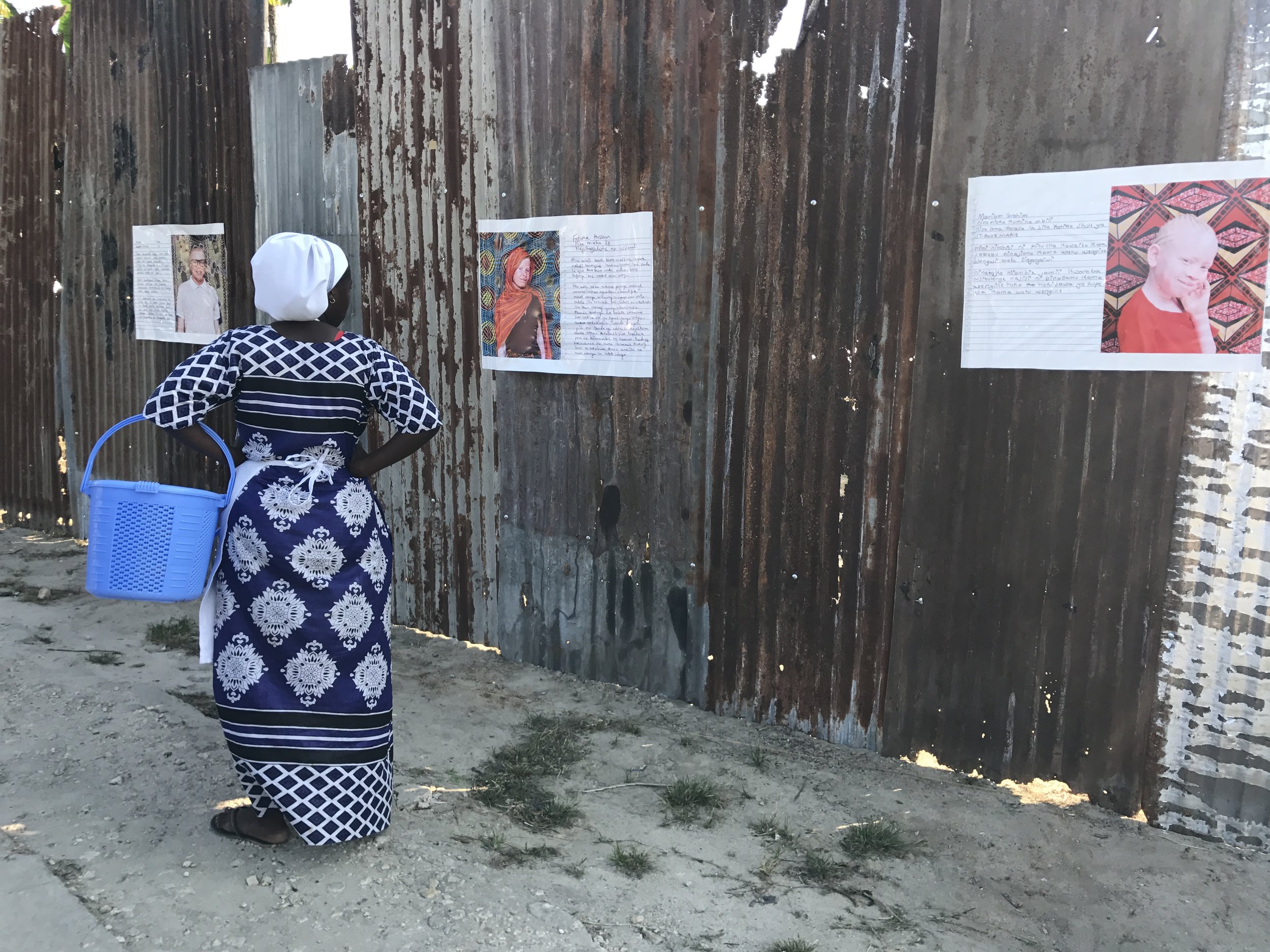
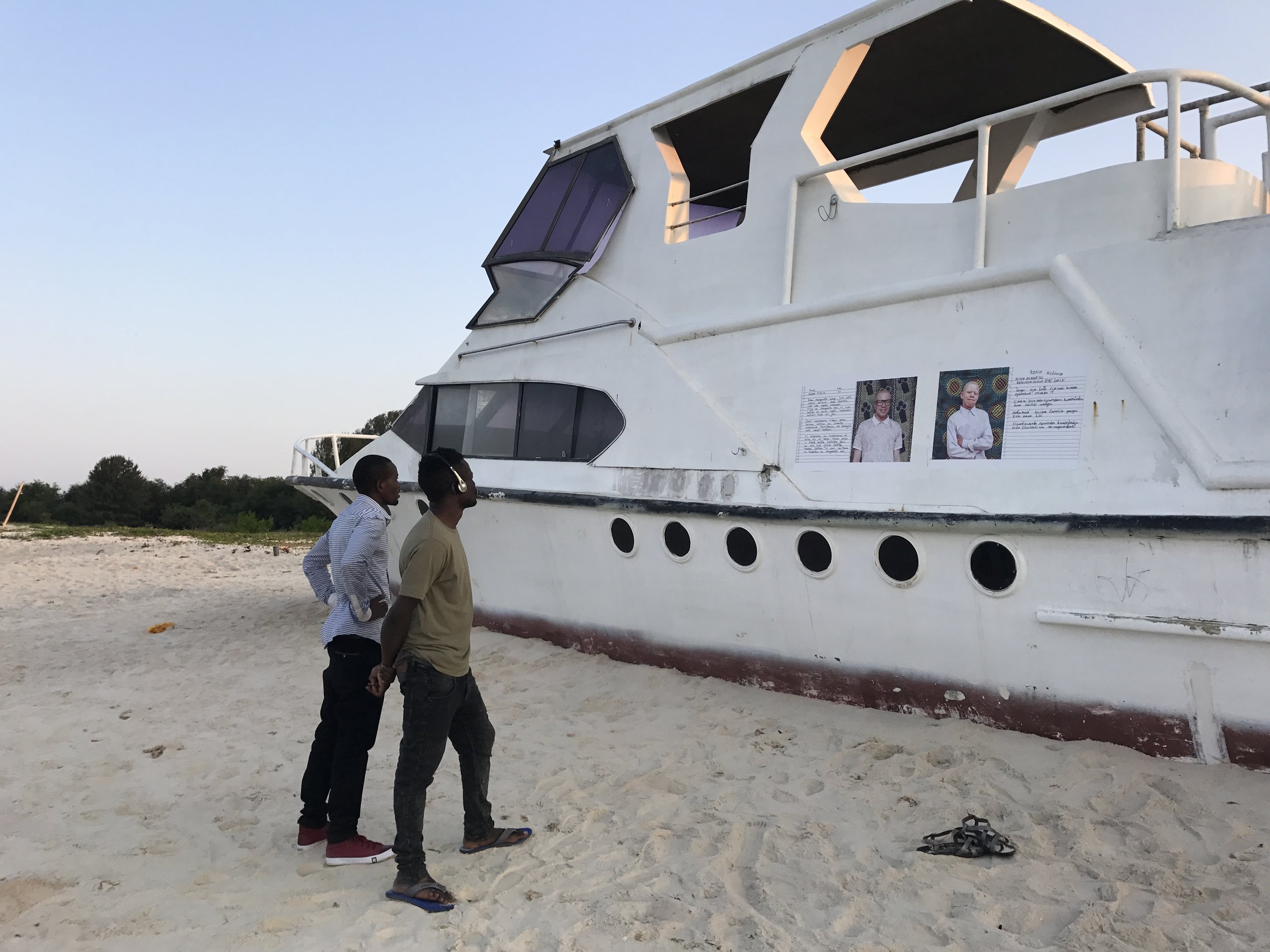
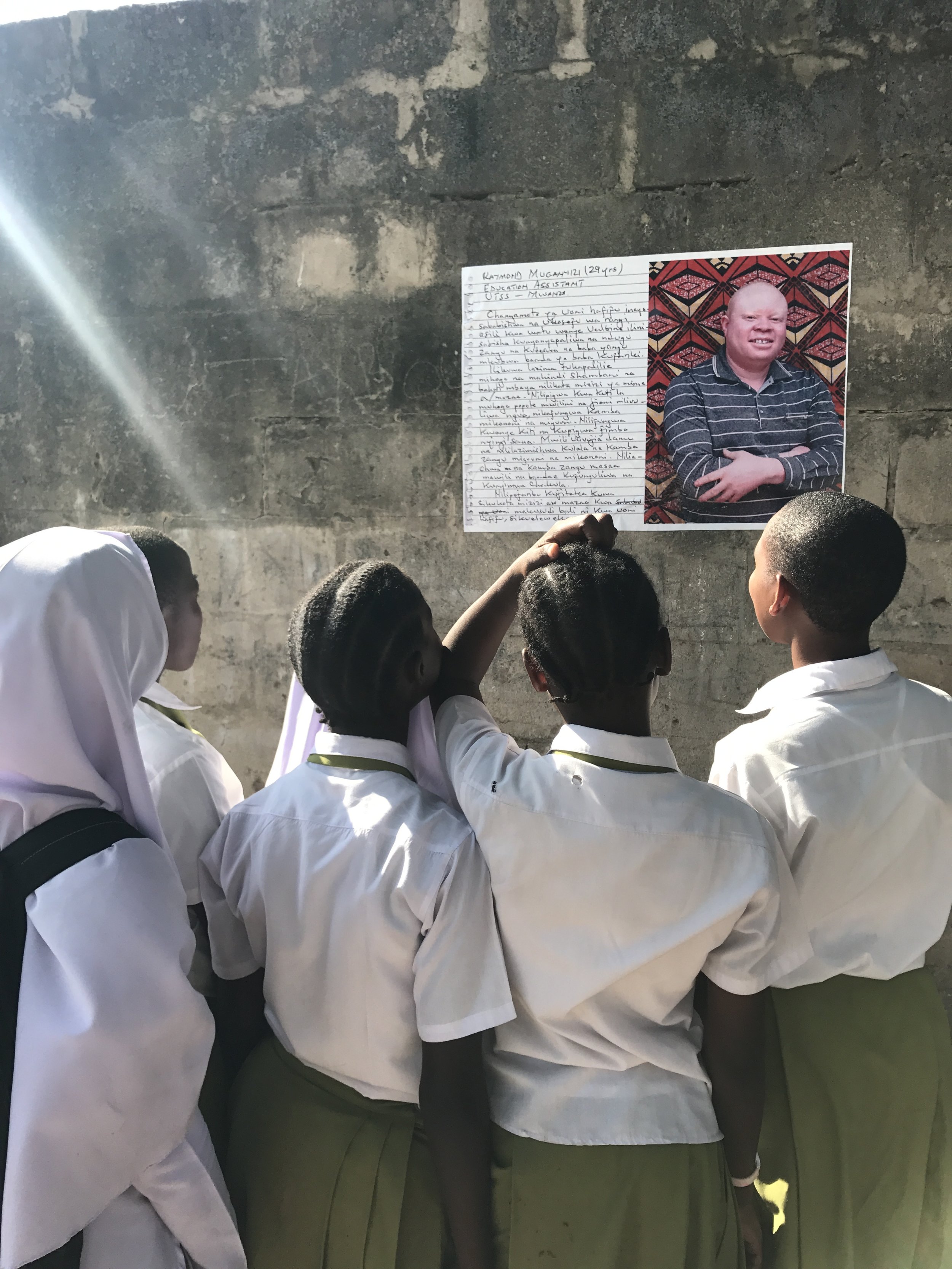

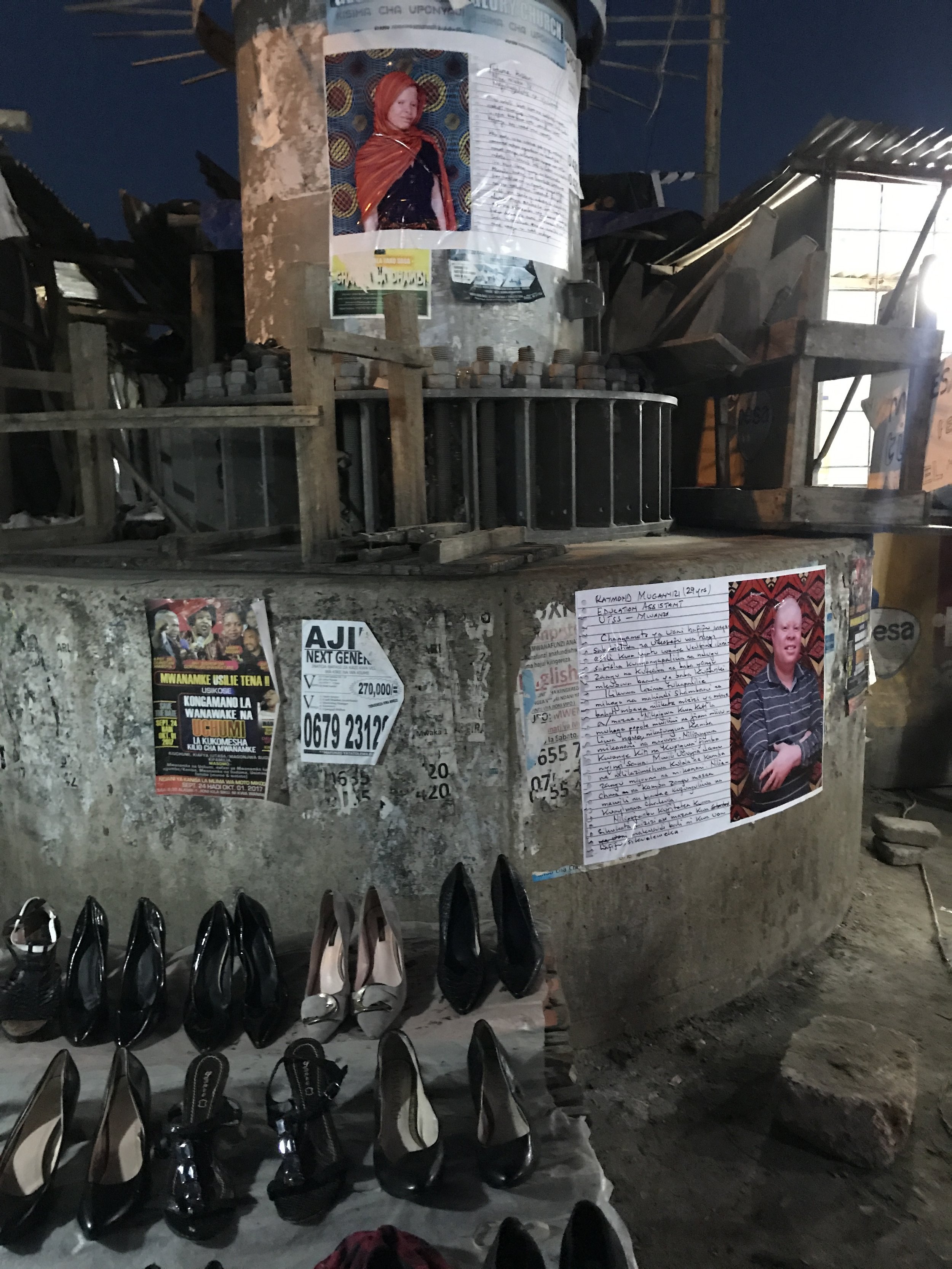
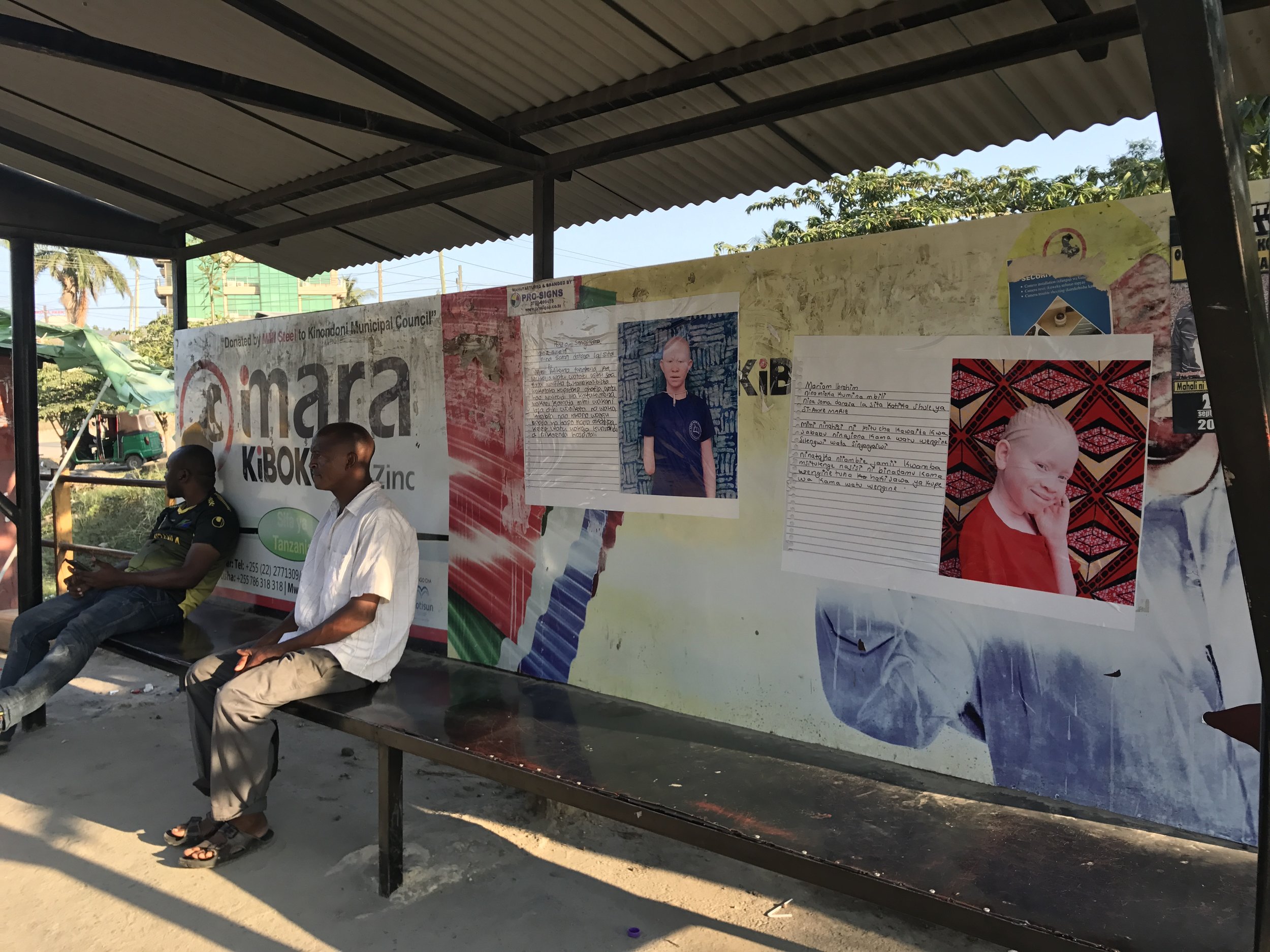
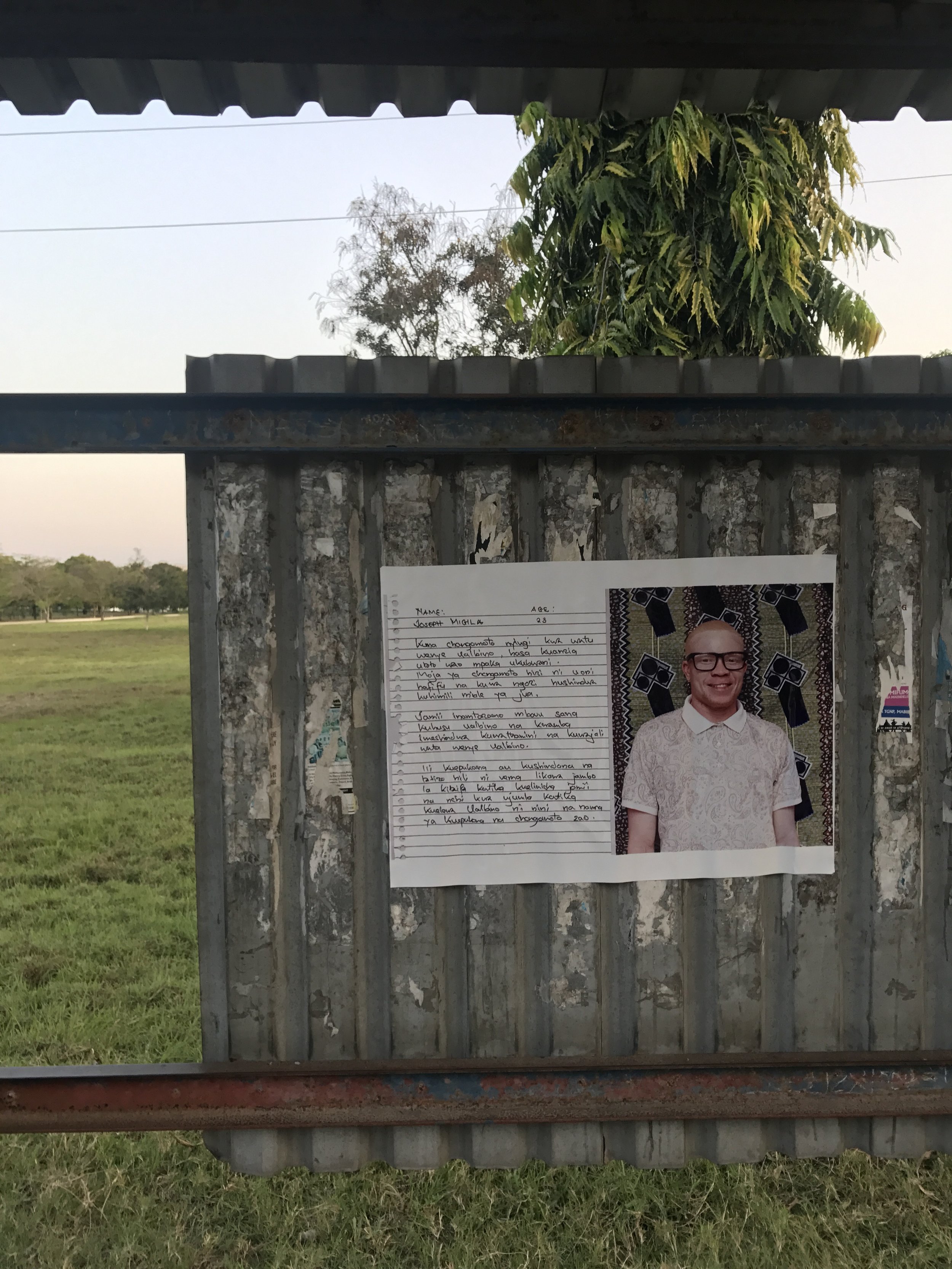
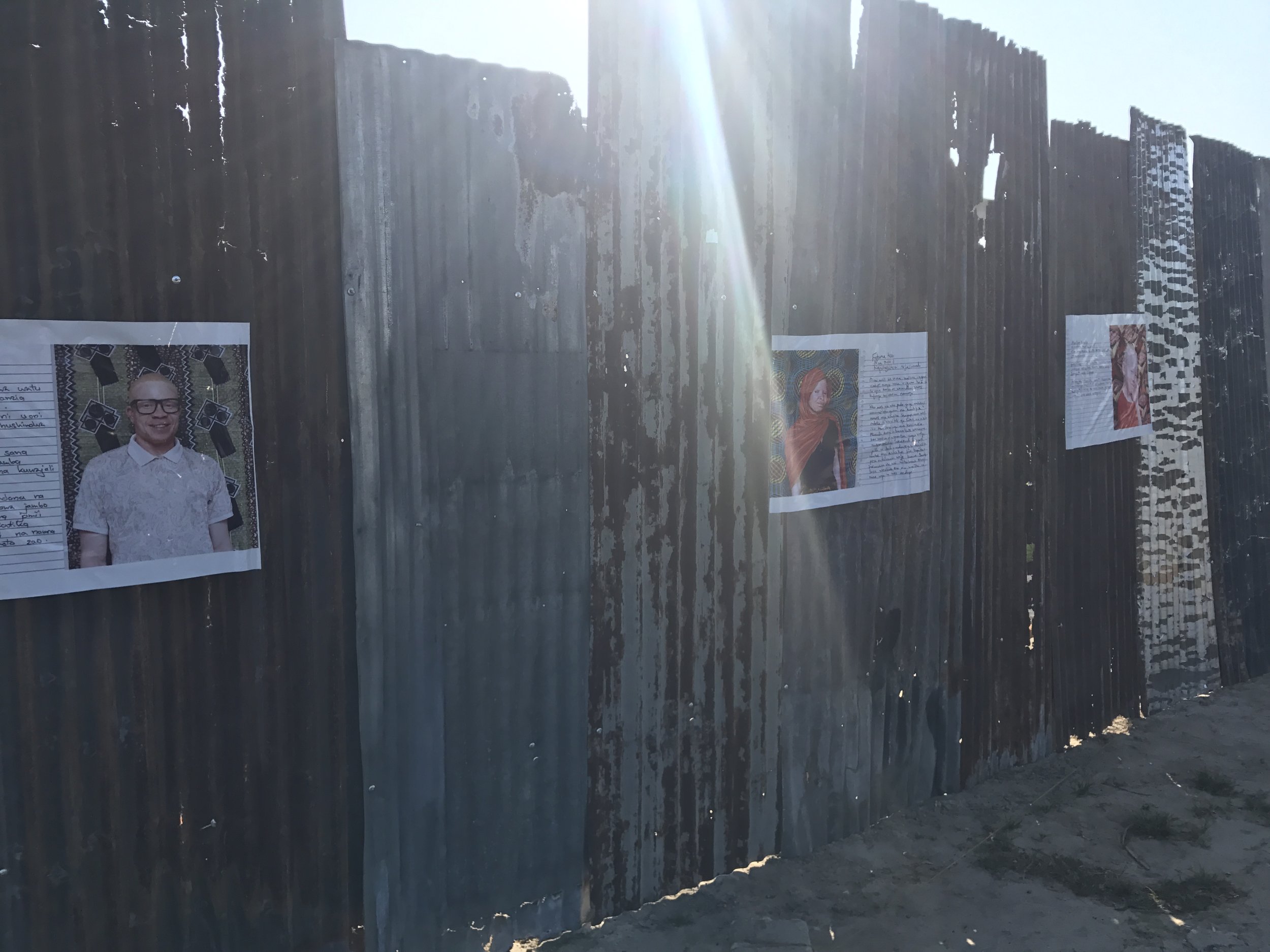
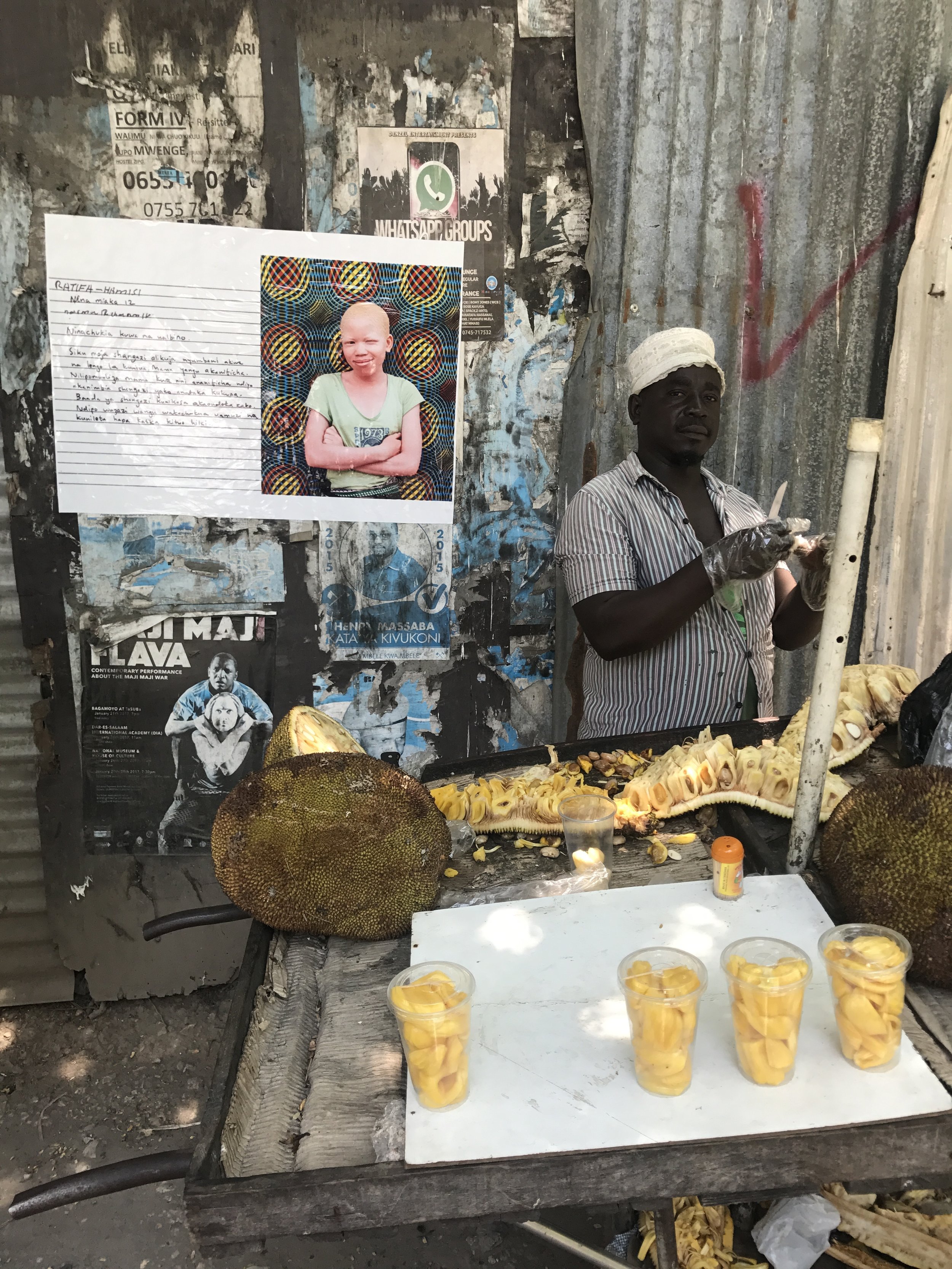
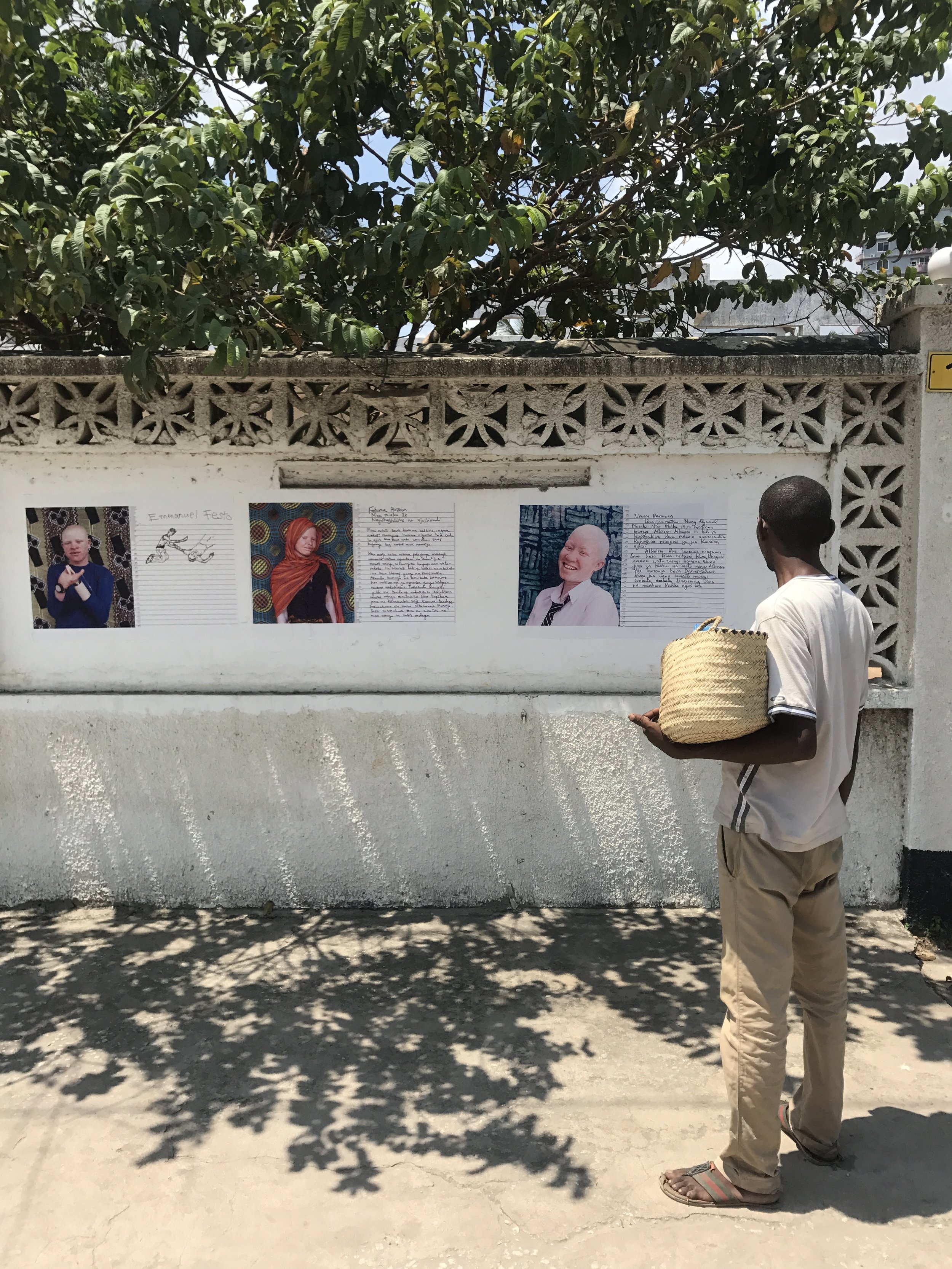
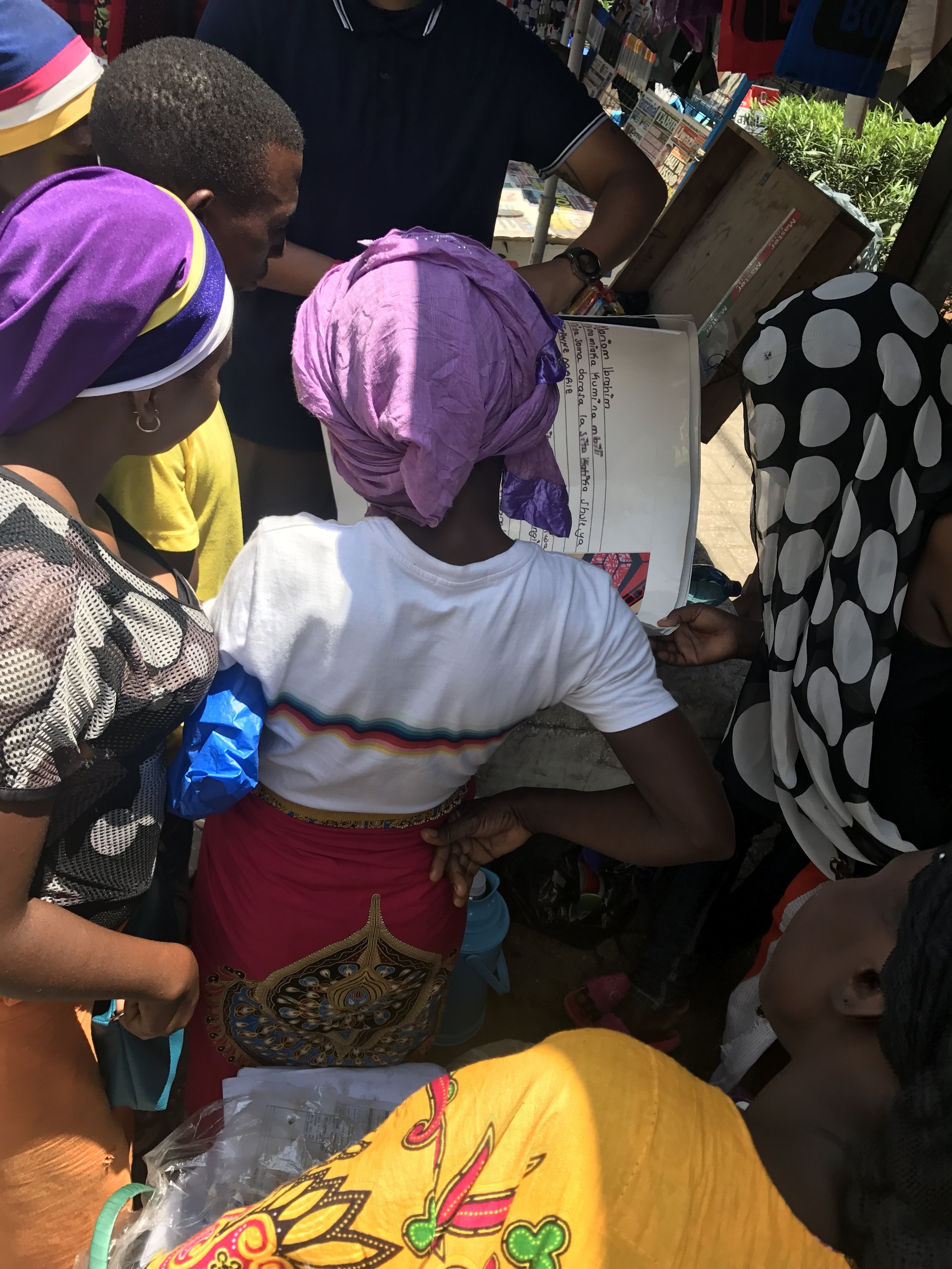
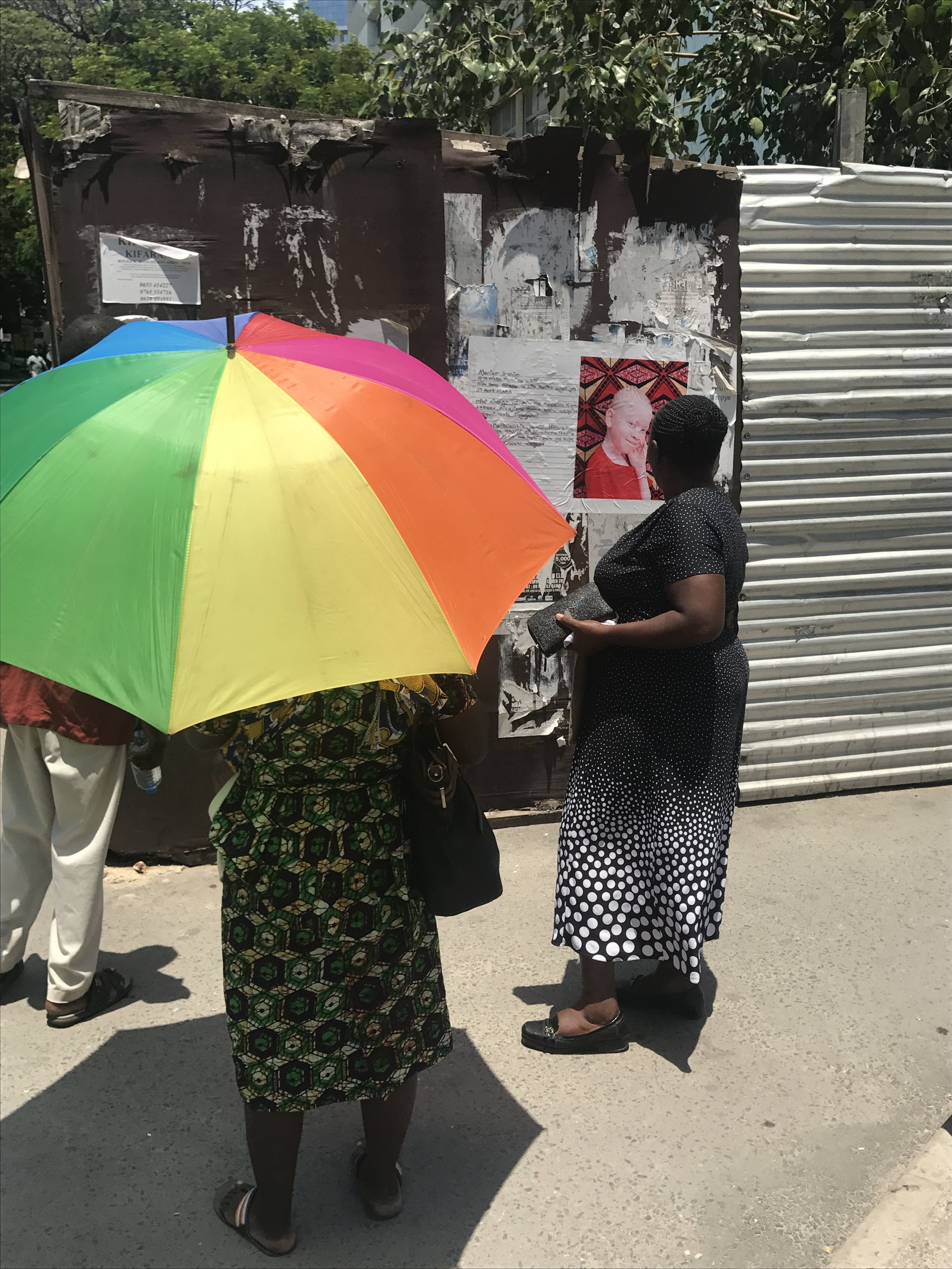
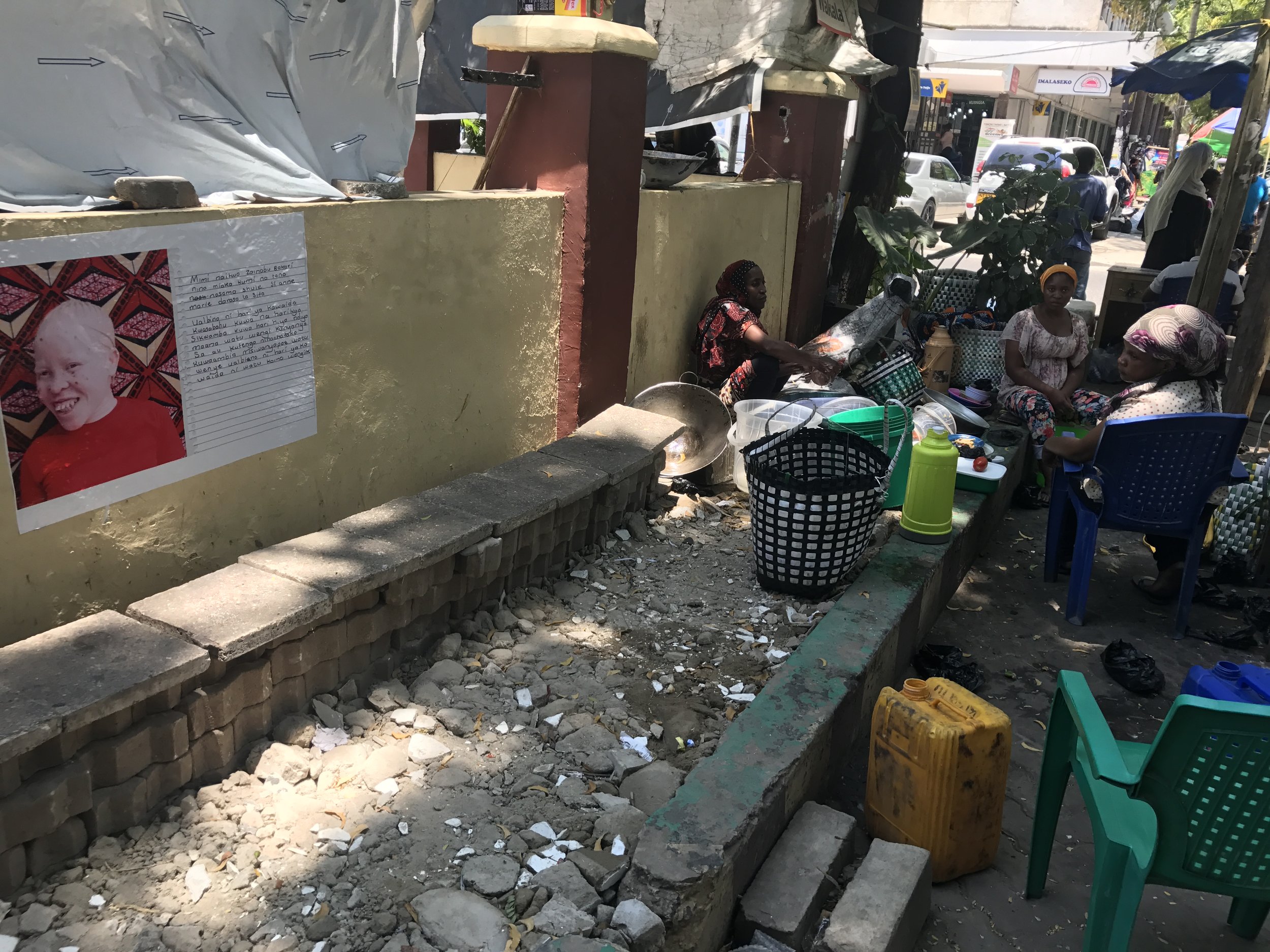
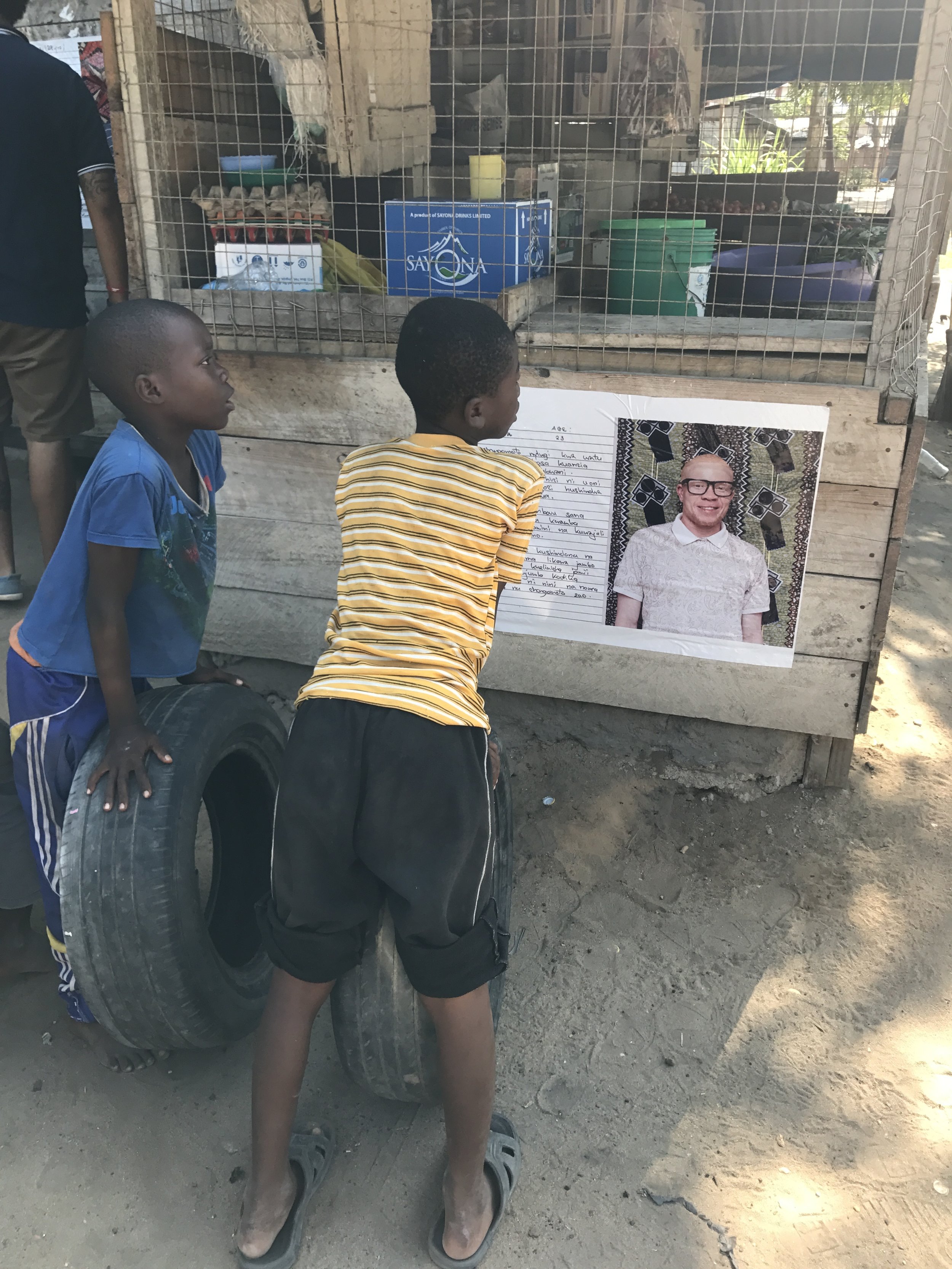
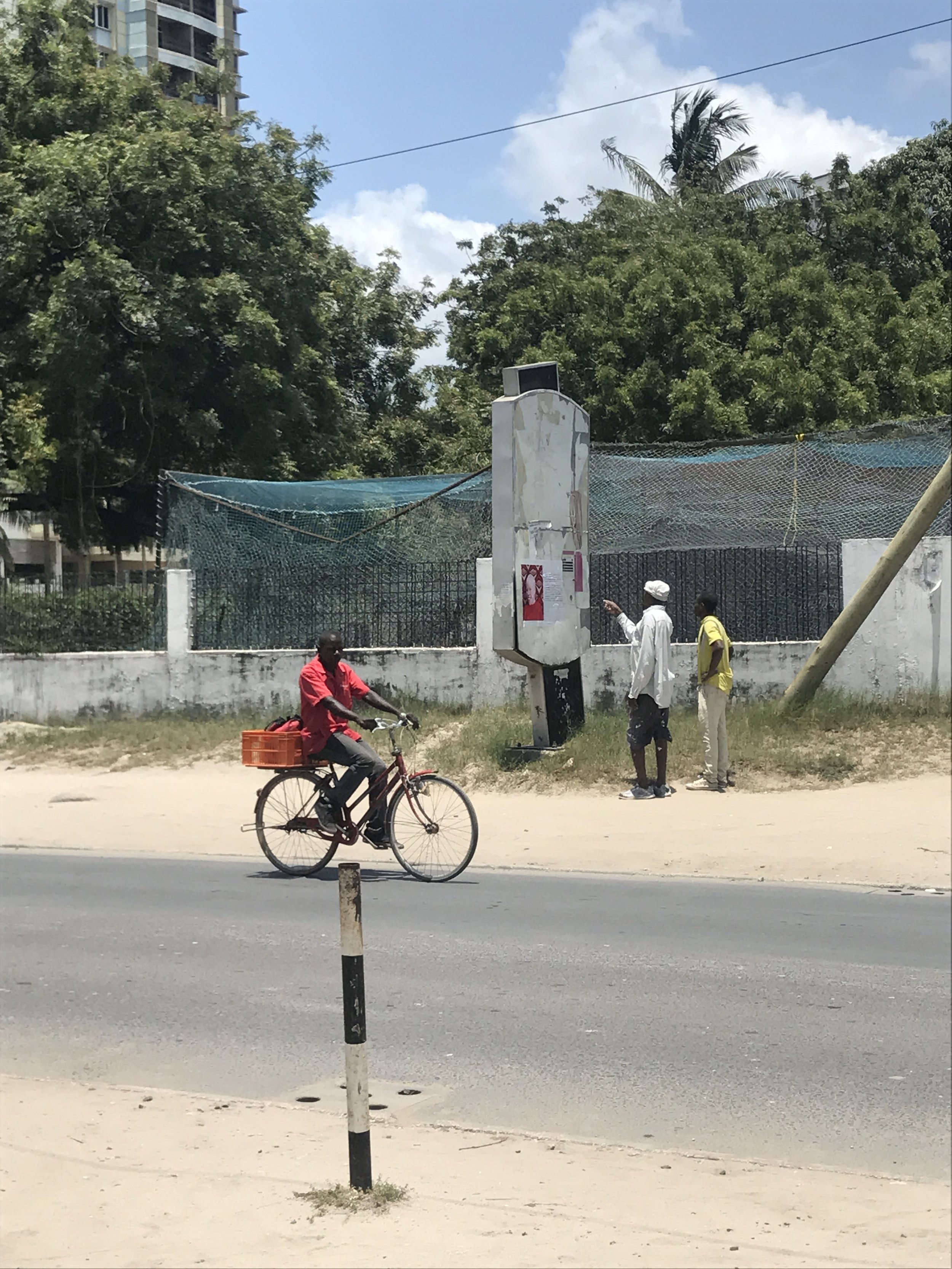
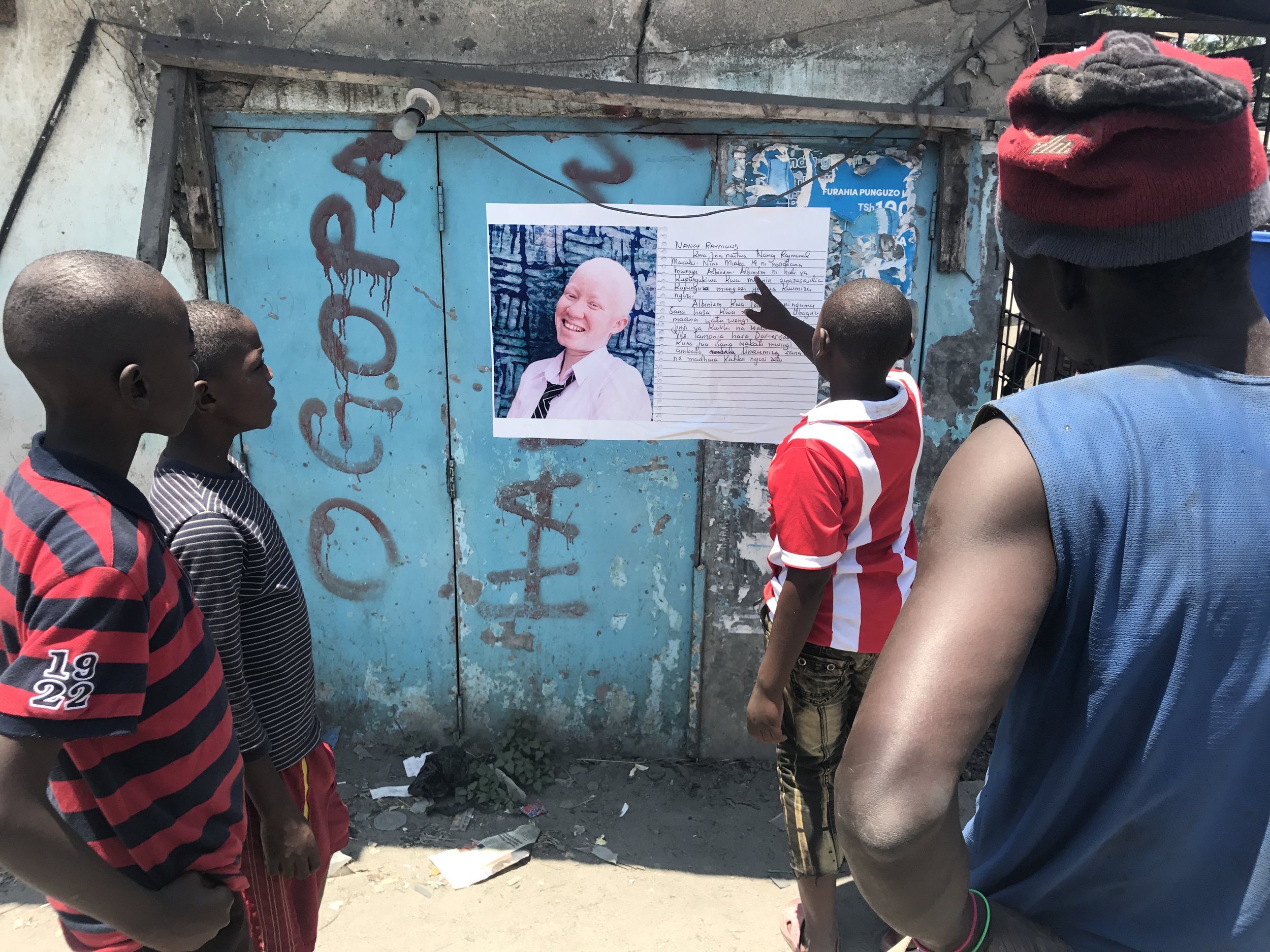
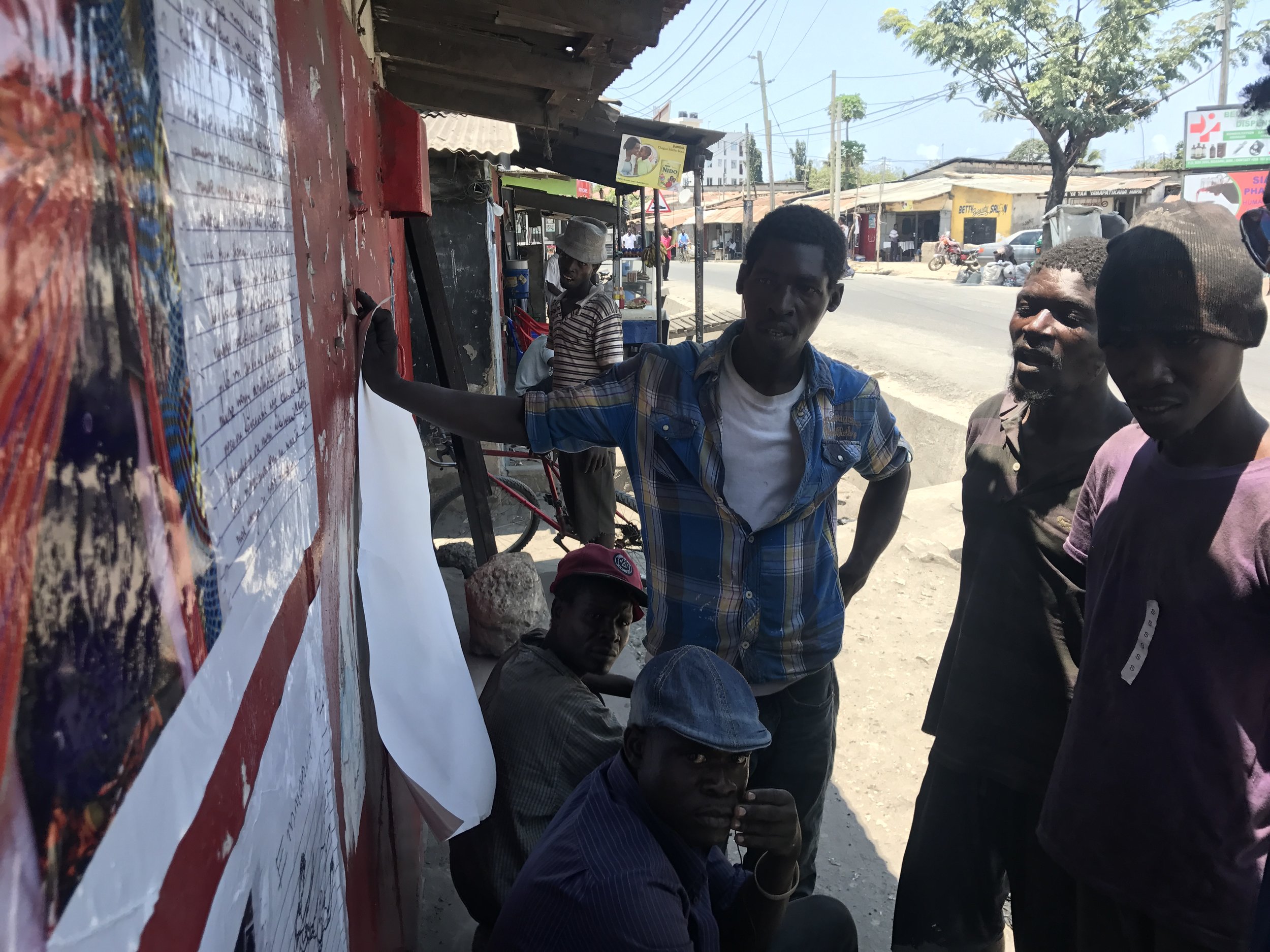
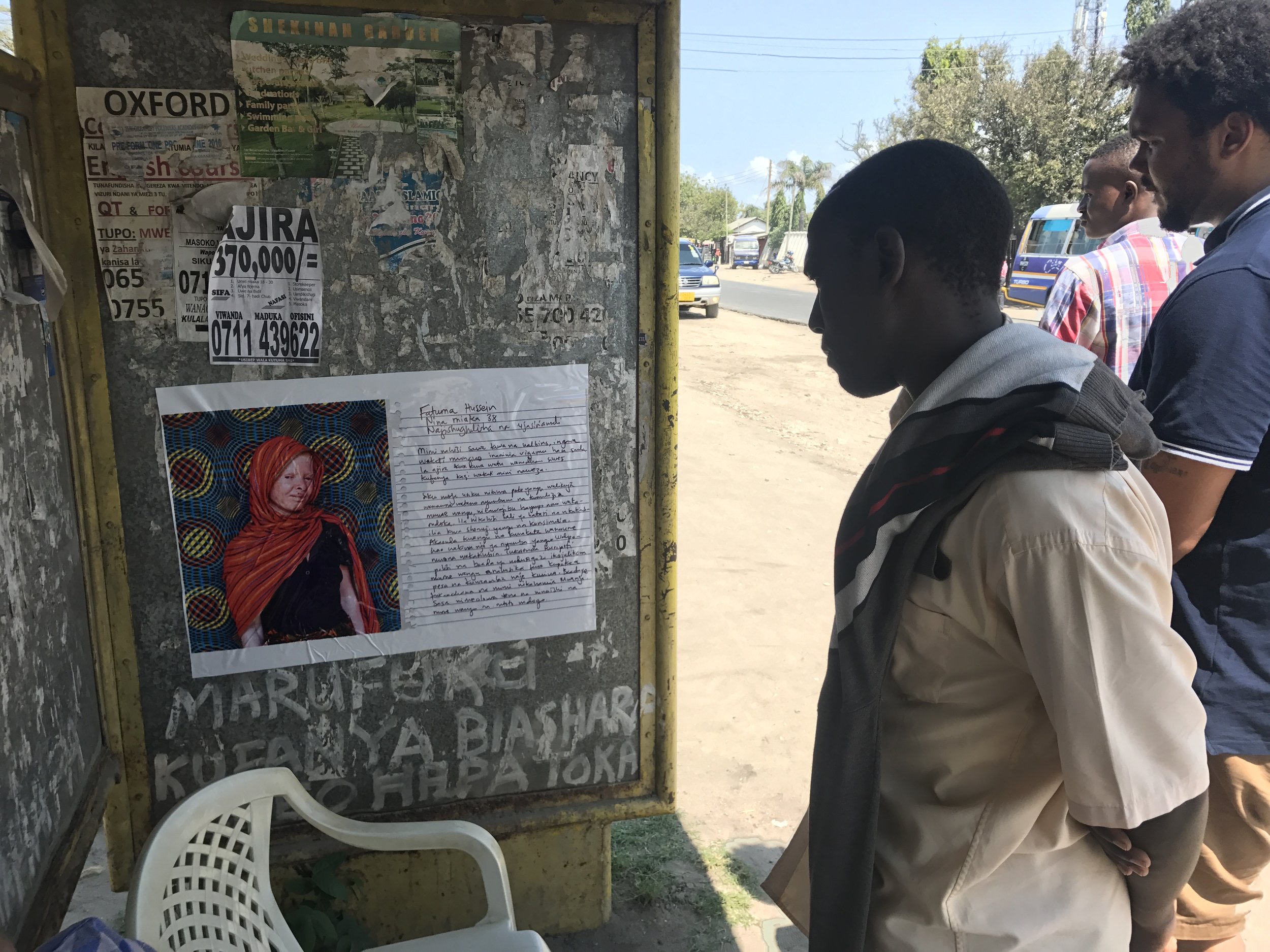
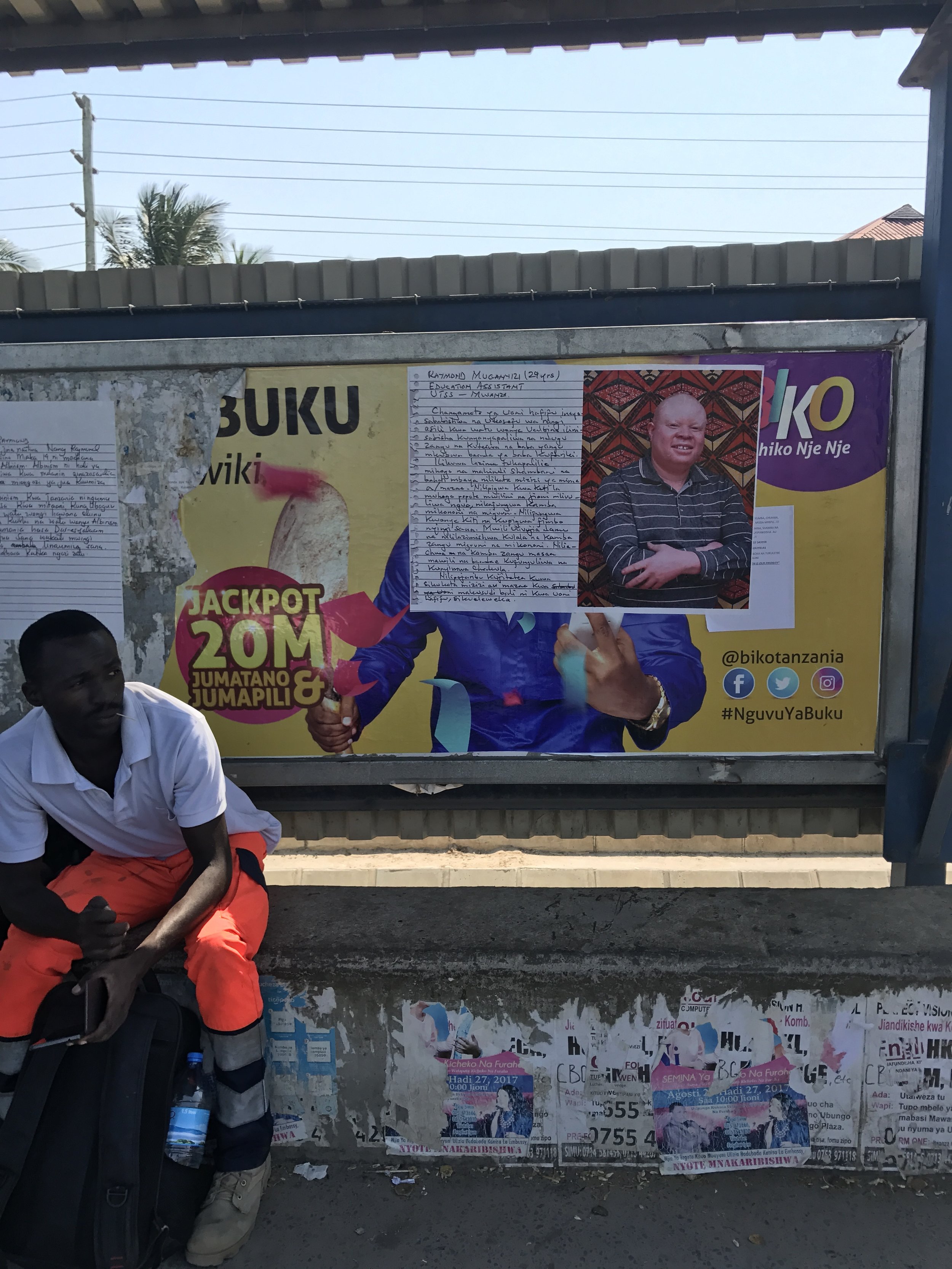
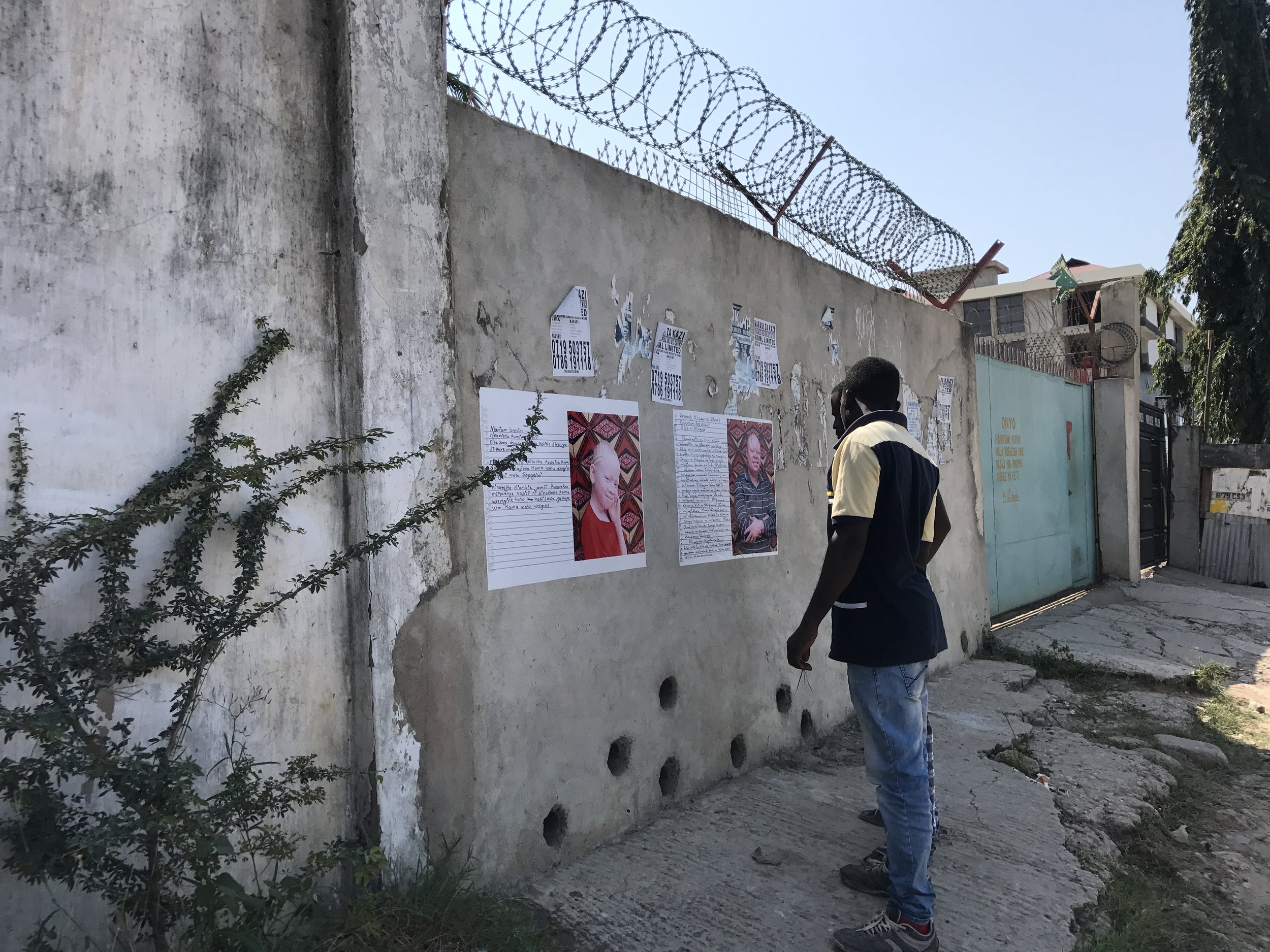
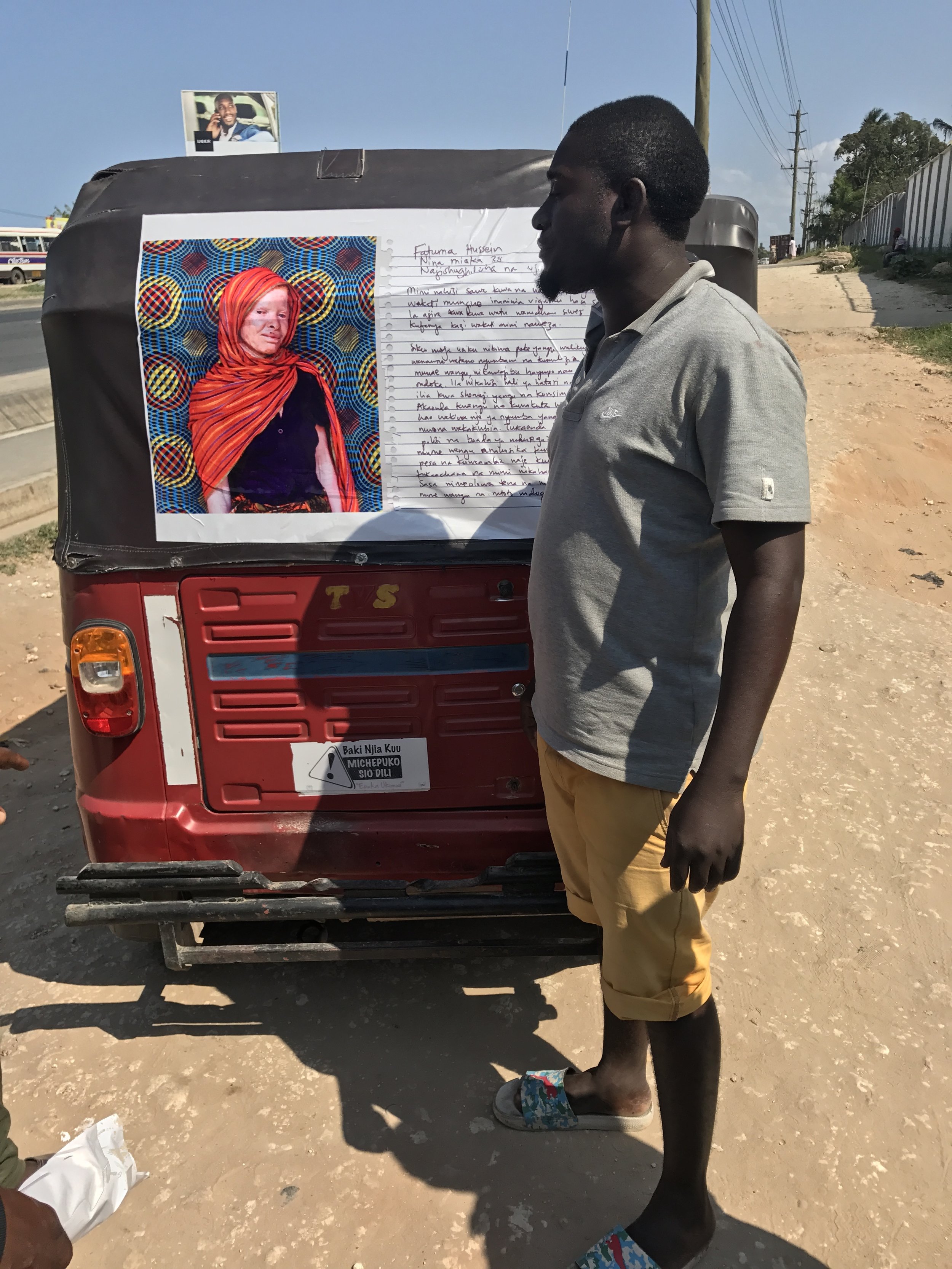
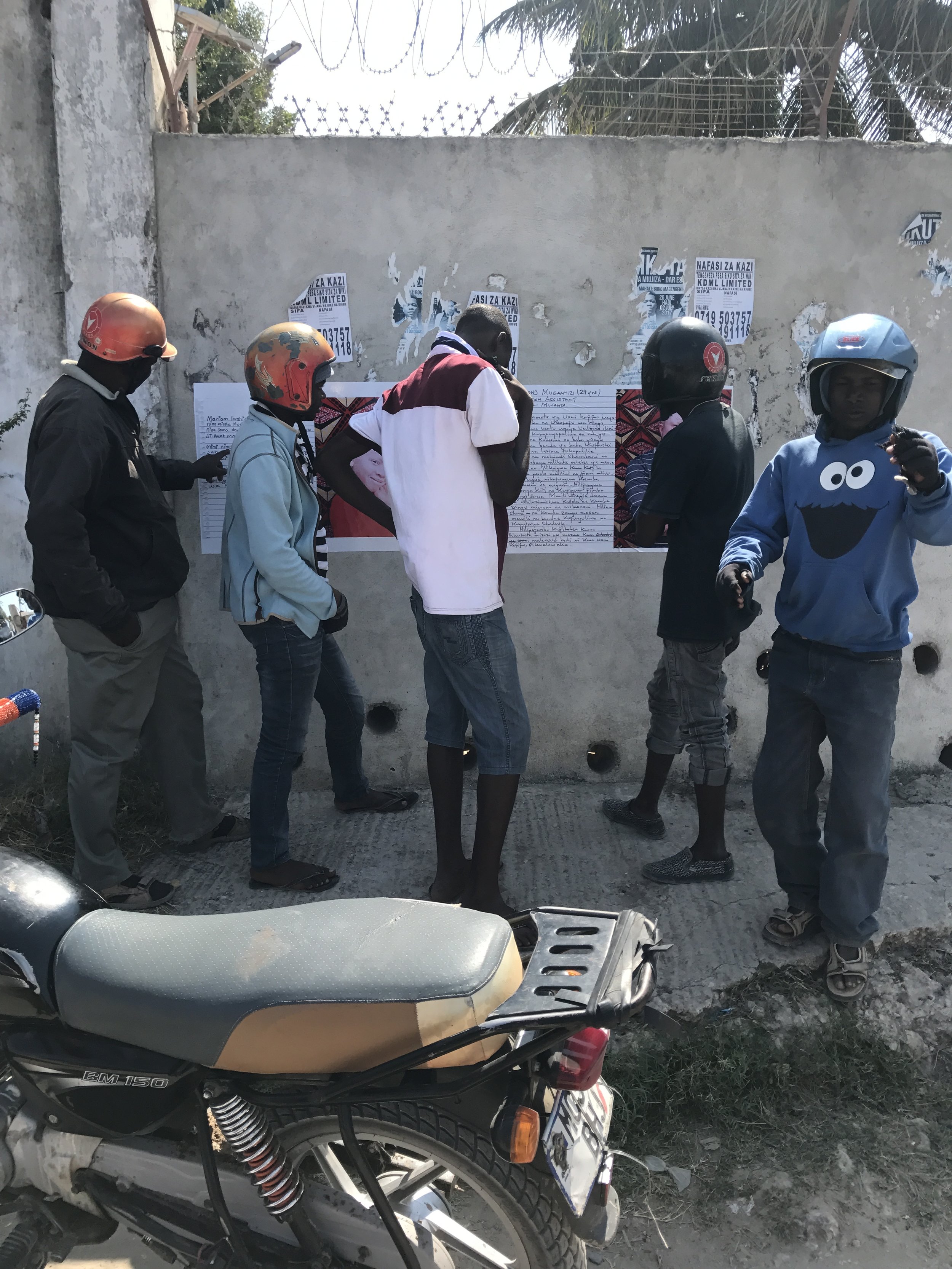
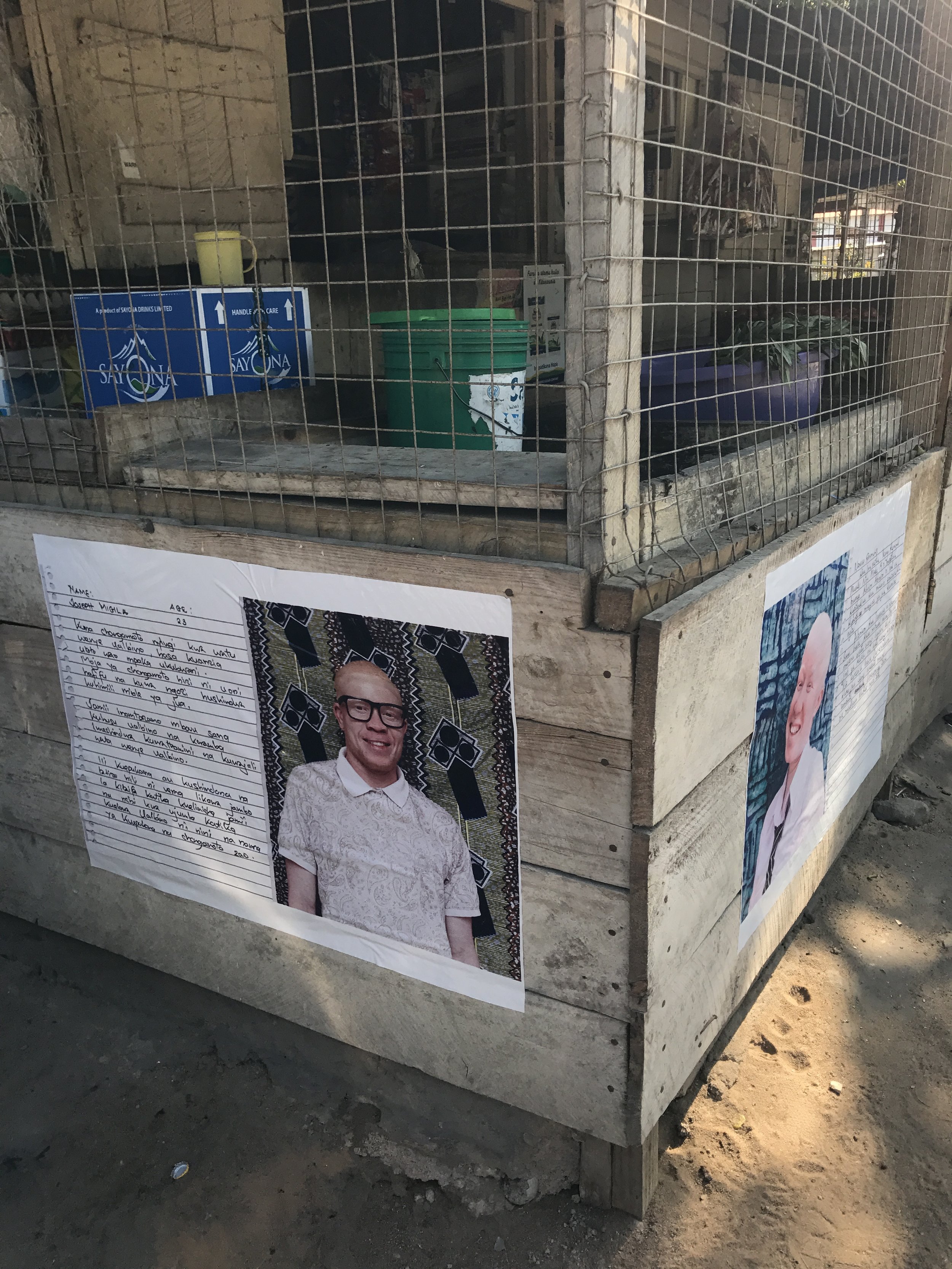
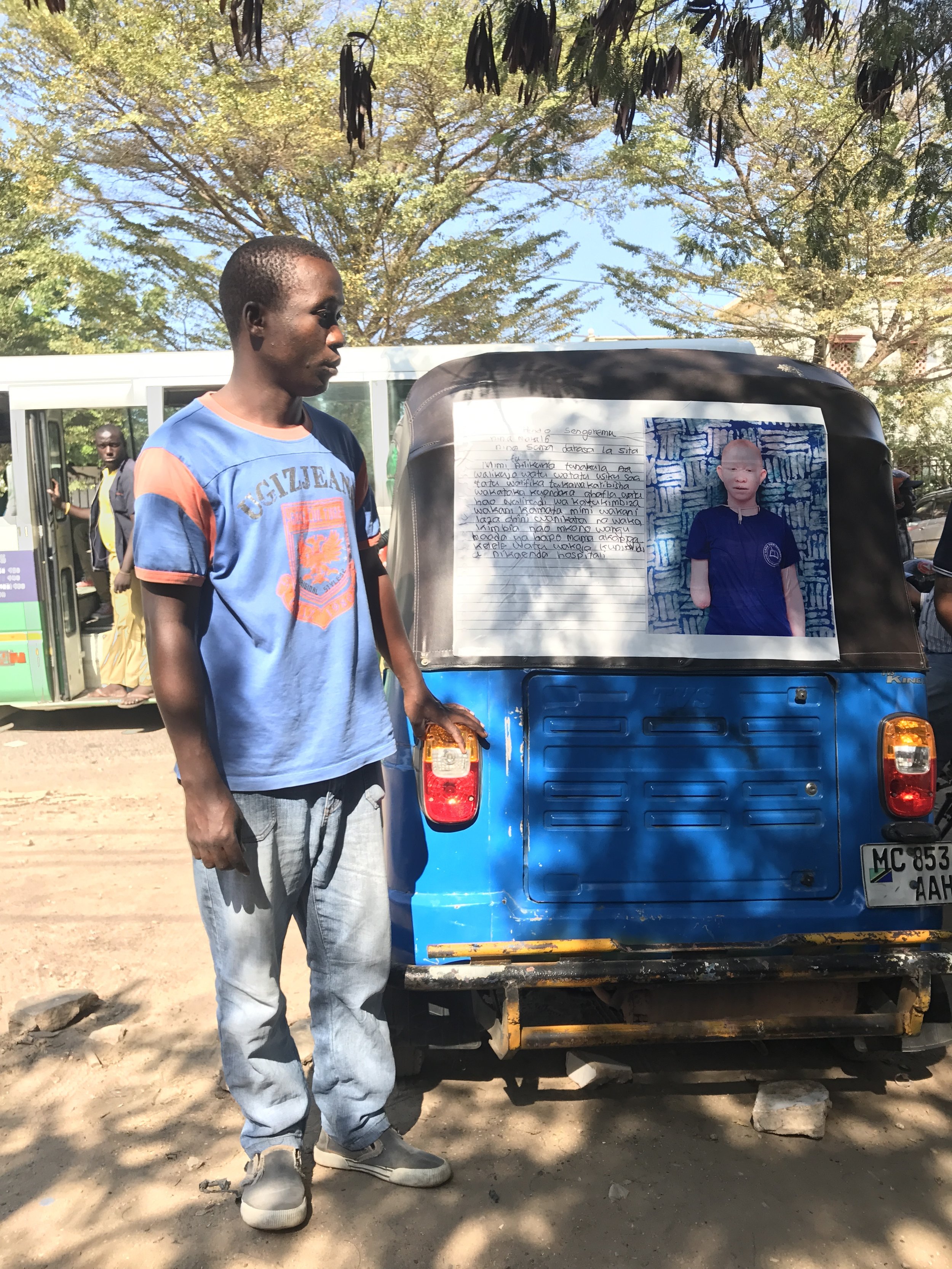
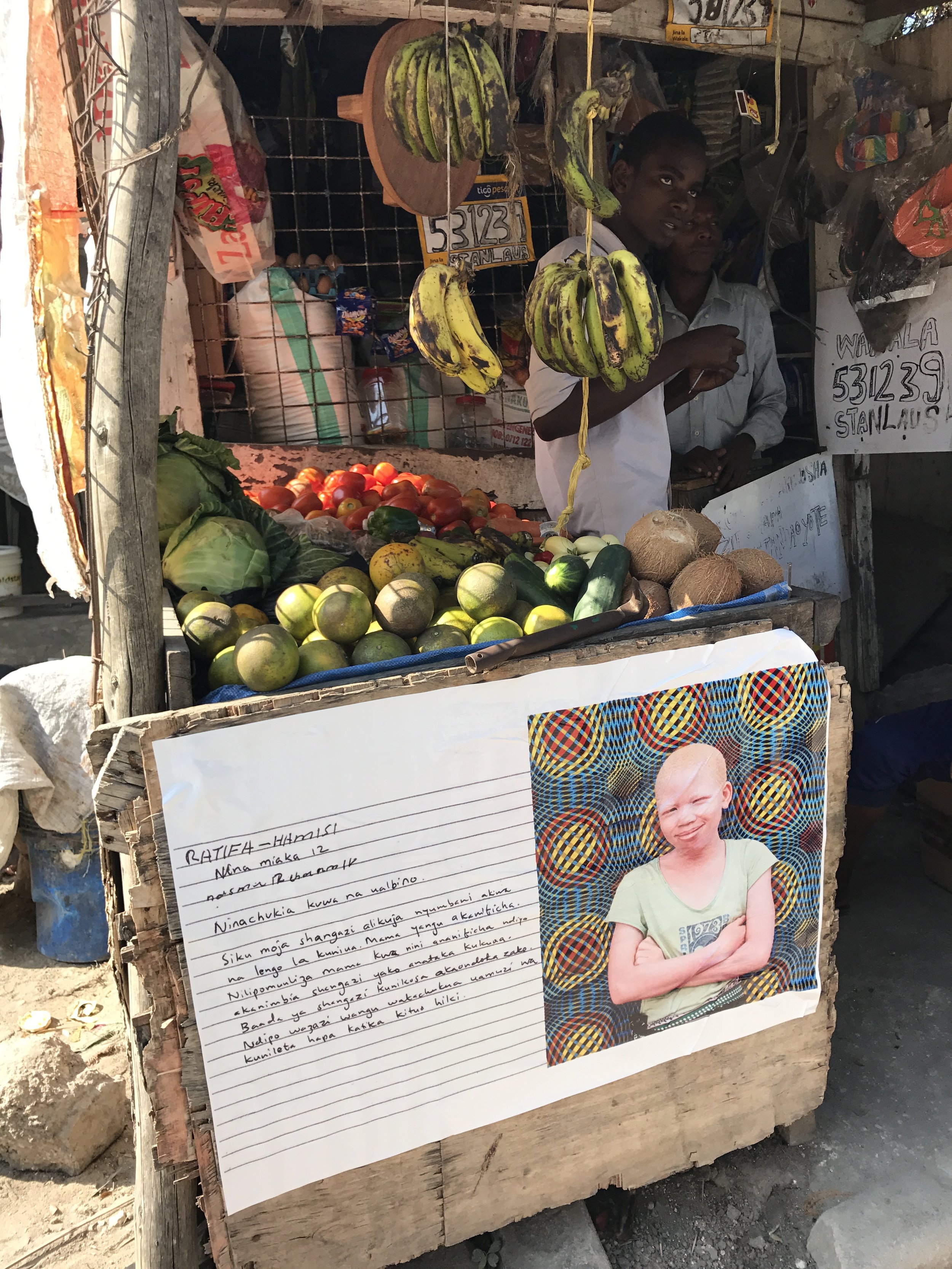
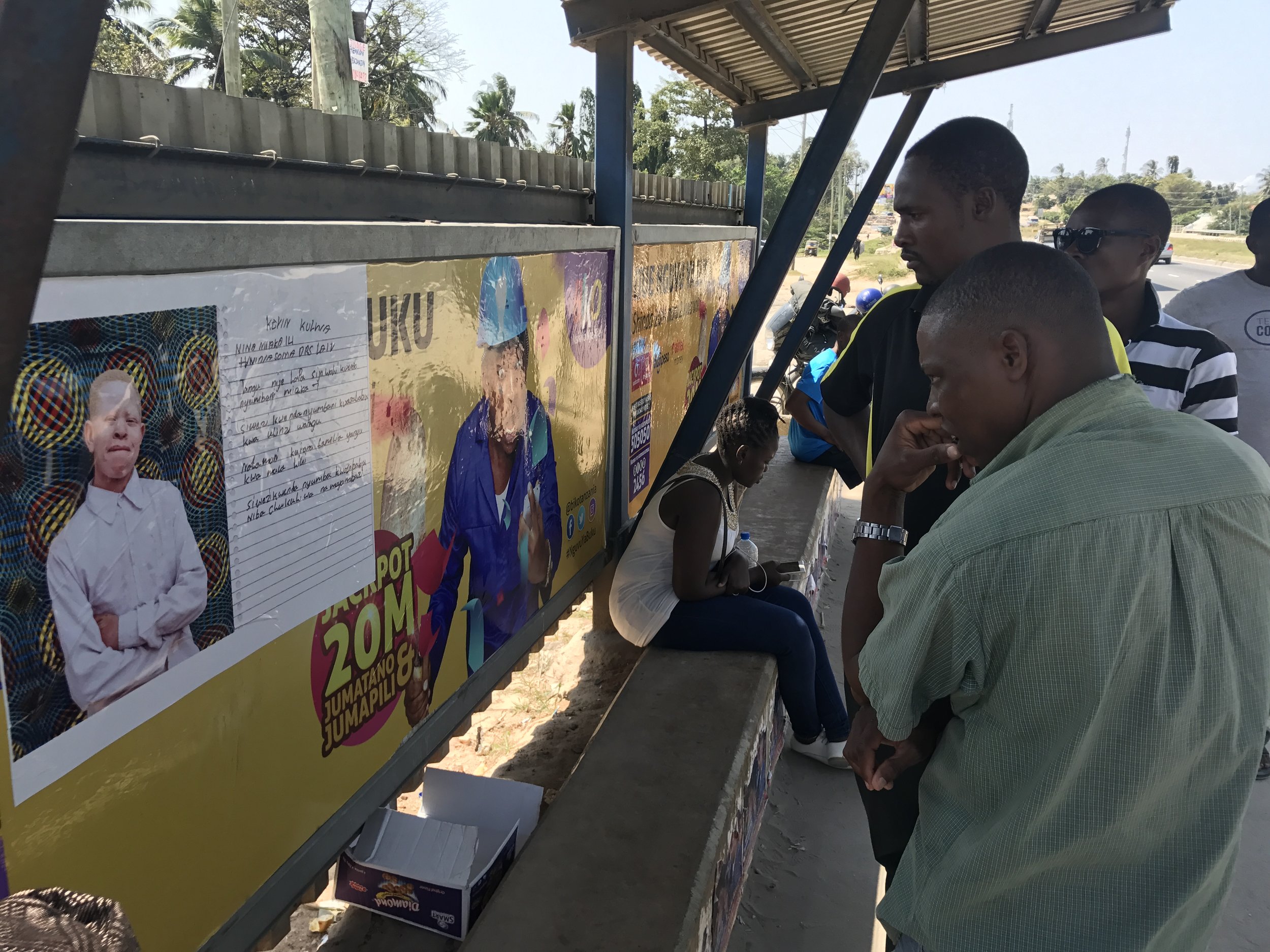
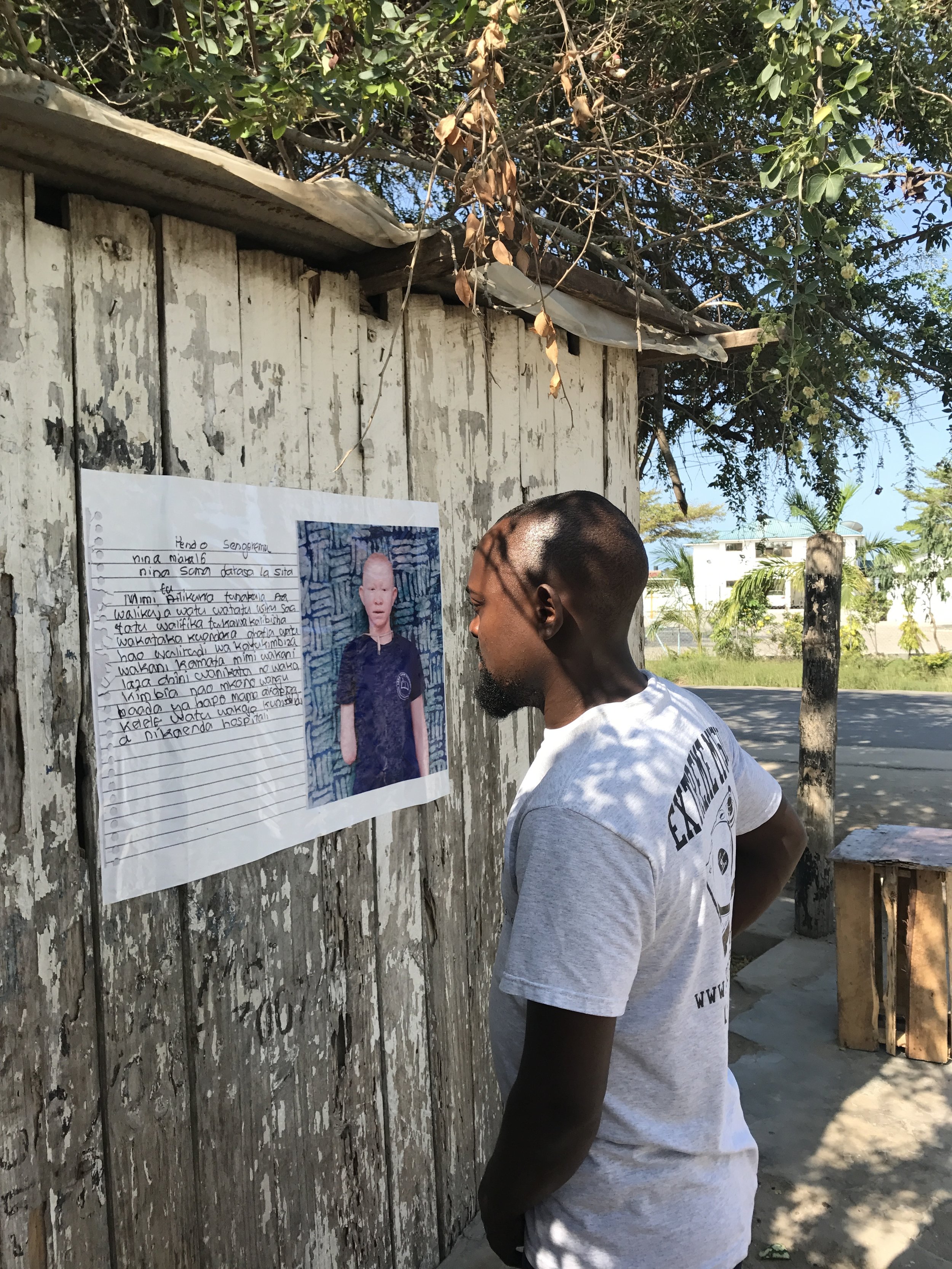
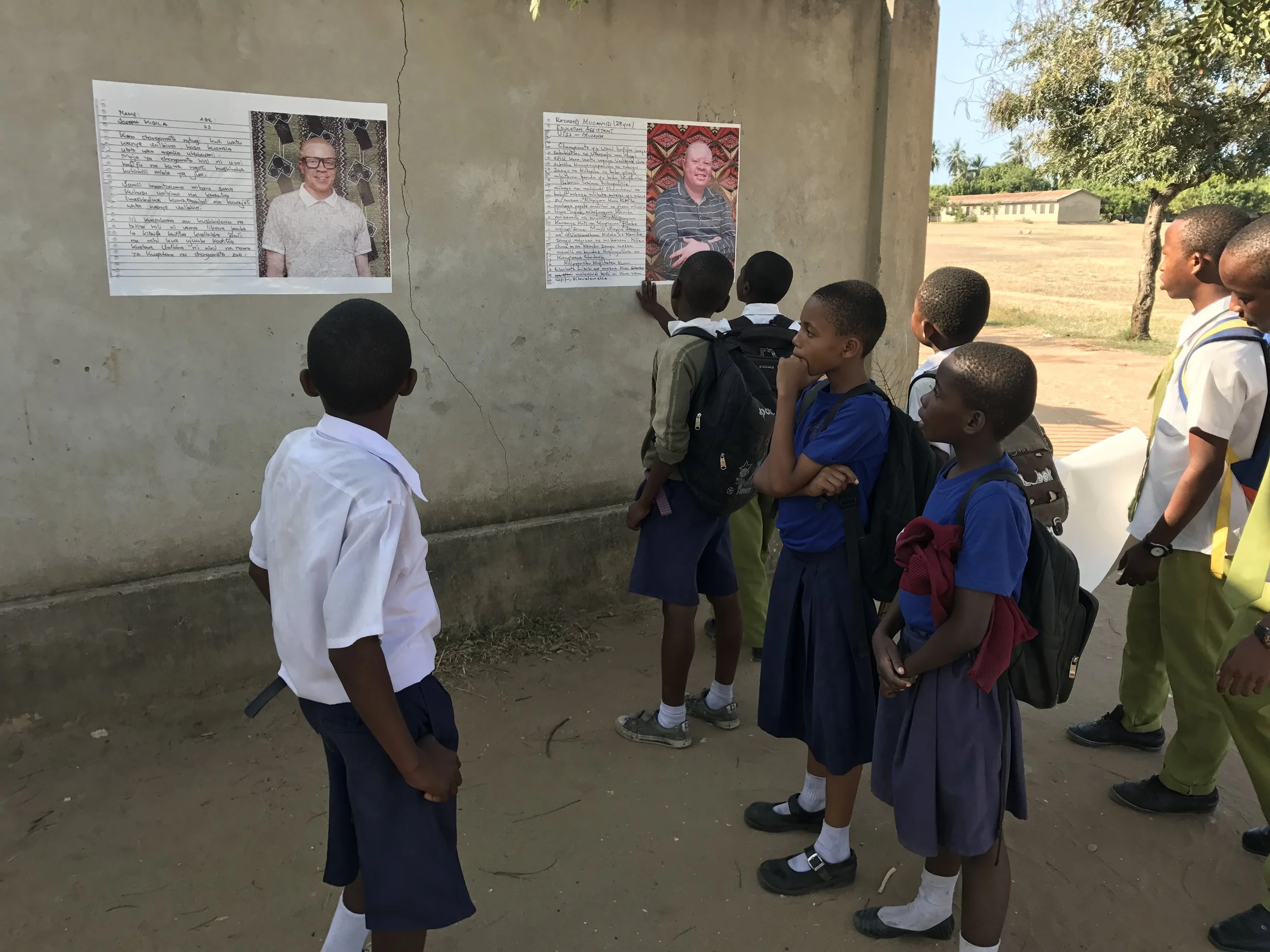
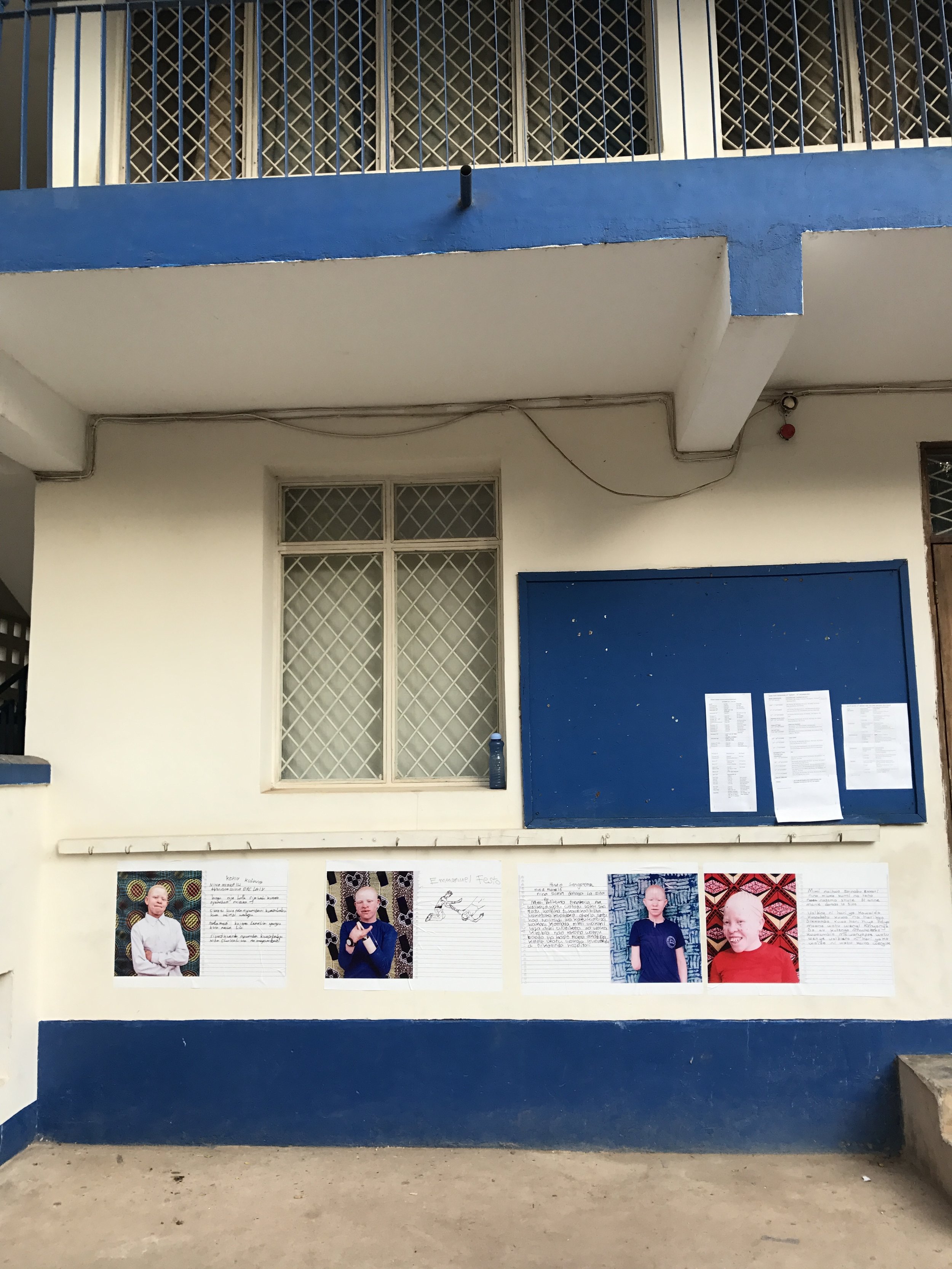
* Alongside each portrait, you will find each individual's written passage describing their experience, story, or report of what it means to suffer from this condition in Tanzania.
Please go ahead and hover over each image for English translation or click on each photograph for a larger viewing.
